GLOBAL READS GLOBAL READS



All we wanted was a really good magazine. About books. That was full of the really great stuff. So we made it. And we really like it. And we hope you do, too. Because we’re just getting started.


 By Melissa Scholes Young
By Melissa Scholes Young


Sarah Kloth
PARTNER, PUBLISHER
Debra Pandak
COPY EDITOR
Molly Niklasch
Christian Brown
Alyse Mgrdichian
Gabriella Guerra
Wyatt Bandt
Christina Consolino
Michele Mathews
Anthony Carinhas
Jane Miller

Nolan Emerson, PhD, is a brilliant young theoretical and experimental physicist who is a professor at the University of Geneva, and the lead scientist at the CERN particle accelerator. He is a leader in the areas of general relativity and quantum mechanics. Dr. Emerson devises an experiment so radical and revolutionary that it seeks to unlock the astounding, complex, and mysterious secrets of Einstein’s space-time. Ultimately, his work challenges the fundamental notions of consciousness and of the concept of reality itself.
1918: THE GREAT PANDEMIC
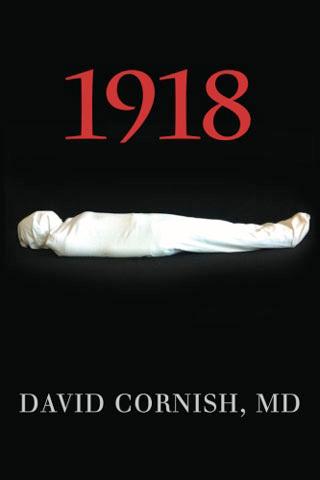
Major Edward Nobel’s mission, as a physician, is to help protect American troops from infectious ailments during the First World War. However, his unique vantage point in Boston allows him to detect an emerging influenza strain that is an unprecedented global threat. Eventually, the 1918 influenza pandemic killed up to 100 million people, and became the worst natural disaster in human history.
1877: A NORTHERN PHYSICIAN IN SOUTHERN UNGOVERNED SPACES

Colonel Charles Noble is a US Civil War veteran, and an Army surgeon reservist. Extreme violence in the former Confederacy, in anticipation of a national election, has caused President Grant to send additional federal troops to the Southern states. Terrorists are determined to counter Noble’s good intentions, as they threaten the civil rights, and the very lives, of all who oppose them.
1980: THE EMERGENCE OF HIV LEARN MORE AT
Dr. Arthur Noble is a brilliant first-year medical resident in San Francisco. Noble encounters a strange new ailment that seemingly appears out of nowhere, and delivers its victims a most horrible merciless death. Dr. Noble struggles to find answers to the medical mystery, even as many researchers and society refuse to believe that it is a serious public health hazard, or that it even exists.

Frankly Feminist: Short Stories by Jewish Women from Lilith Magazine By Sarah Kloth
Fiction In Translation By Sarah Kloth

An Interview with Shahriar Mandanipour and Sara Khalili By Alyse Mgrdichian
Inspiration, Short Stories & Indie Publishing: An Interview with Lazarus Panashe Nyagwambo By Alyse Mgrdichian
Kamal Gupta, Author of Play
Right By Michele Mathews
Adria Bernardi on
Street
Sarah Kloth










In this annual Read Global issue, featuring books in translation, we remember that just three percent of books published in the United States are translated from other languages. And yet, these books in translation are our best opportunity to learn about and empathize with our neighbors across the globe.



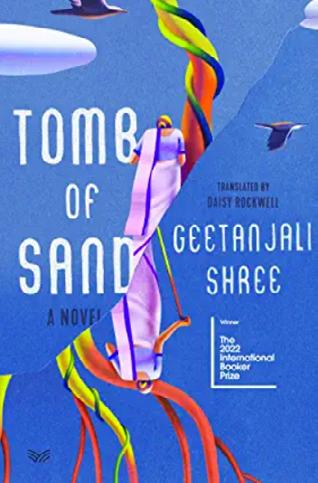





In this issue we celebrate the beauty and diversity of stories.


If you enjoyed Bill Bryson’s book, The Life and Times of the Thunderbolt Kid, and Russell Baker’s book, Growing Up, you will thoroughly enjoy the hilarious, coming-ofage, romantic comedy, My Favorite Girlfriend, by Paul Sturm. This humorous and entertaining memoir details how a scrawny, funny-looking, audaciously witty kid leveraged his surprising athletic skills in basketball and his creative imagination in the classroom to become popular. The story is really about romance, identifying the author’s constant desire for a girlfriend, as early as kindergarten.

The story captures the astonishing twists and turns in the author’s romantic relationships and his athletic pursuits, beginning in Park Ridge, New Jersey, as a youth and then at The College of William and Mary. His comical pursuit of love, despite his less than impressive appearance, includes woeful failures with the opposite sex, but some wonderful times, too. After many exciting relationships, would he ever find the girl of his dreams?

That’s just the start of it. The aviation industry is in turmoil, and the U.S. president is off his game. He just shanked his drive into a water hazard on the fourth hole.
Buckle-up for the read of your life. Defined by their individual talents, the good guys serve it up to the villains in this contemporary thriller, involving murder, espionage, and perfidious political power-plays.


This much-loved Aussie author is a perennial winner or finalist in multiple international writing competitions and has acquired 17 awards for 11 of his books.

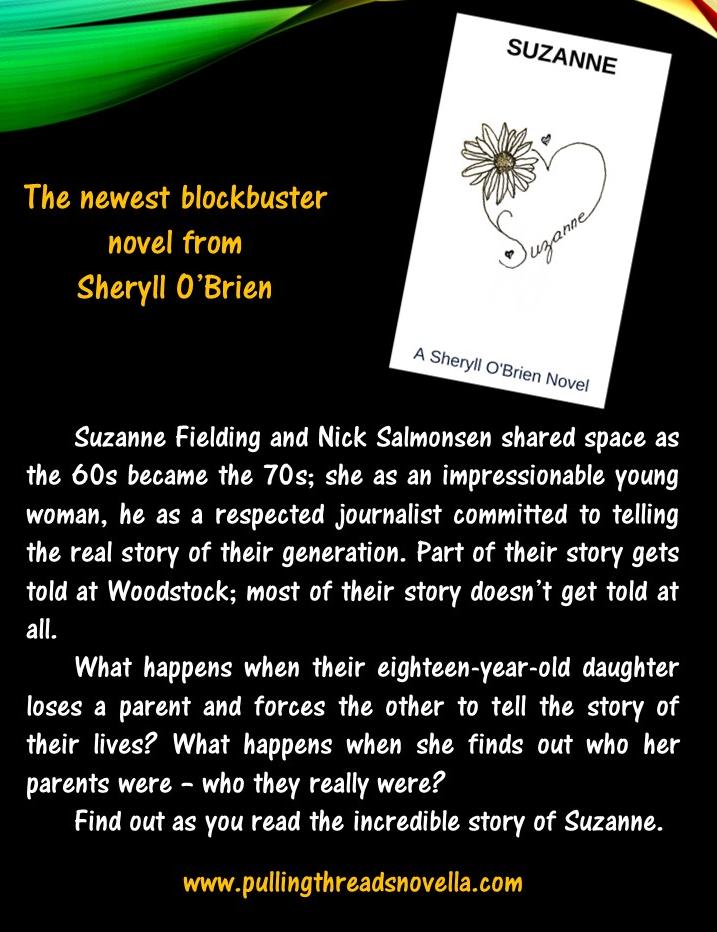
 Q&A with Editors Susan Weidman Schneider and Yona Zeldis McDonough
BY SARAH KLOTH
Q&A with Editors Susan Weidman Schneider and Yona Zeldis McDonough
BY SARAH KLOTH
PUBLISHED IN LILITH MAGAZINE’S 45 YEAR HISTORY. WHAT INSPIRED THIS PARTICULAR COLLECTION?
WHAT ARE THE THEMES FEATURED AND HOW ARE THEY RELEVANT TODAY?
SCHNEIDER: There are several motives to our creating this anthology. No matter when they were published, so many of the subjects in these stories resonate with our concerns right now, almost as if they were ripped from today’s headlines—the assaults on women’s bodies; wars and their effects on women; making sense of intimate relationships that transgress social norms; confronting both misogyny and antisemitism. just as some examples.
And then…these stories have an even greater impact when they’re gathered together, and can be read in relation to one another. We have grouped the stories into categories like XXXX and YYYY so that readers catch the interplay between them. For example, what might be underlying connections
between a story about a mother of 7 (CHK) planning an abortion and the self-determination of a sweatshop worker who fight back against a rape attempt by become a successful sex worker. Or a story about a soon-tobe-married Orthodox woman drawn to her non-Jewish co-worker and a psychotherapist drawn to a fraught out-of-office relationship with one of her patients.
And a third motivation is our absolute conviction that each of these stories has huge merit on its own and should be showcased in an anthology. As we point out in the introduction, these are all very “modern” stories, even the ones set a century ago. They don’t wrap up neatly. A story about a Black Jewish woman marching for racial justice in Washington DC leaves the reader pondering what changes the decades have wrought in our lives. In another story, a very young, very reluctant Persian bride on her wedding night, when she surprises both herself and the reader by its outcome.
We believe that we publish some of the most original and exhilarating
stories out there today and we wanted to bring this stellar work to a wider audience.
SWS: The target audience is anyone who enjoys short stories and smart literary fiction. And anyone who follows benchmarks in the lives of Jewish women and girls across a wide range of backgrounds, eras and identities. The target audience for Frankly Feminist cuts a pretty broad swath: readers interested in compelling narratives, cultural identity, female development, feminist politics, religious practices—and much more.
YZM: We see this as a book that will appeal to lovers of short fiction in general, and Jewish-themed fiction in particular. But we also think that it will appeal to readers seeking a feminist perspective and that it will be well-suited to college courses and reading lists.
SWS: One of the aspects of Lilith’s new anthology that really thrills me is what I learn each time I read through these stories: that we have built a very big tent to hold Jewish feminist voices. Which is as it should be! No one voice here represents the whole, but the stories interact with one another, like the tiles in a mosaic or the instruments in orchestral music. The composite of these experiences is exciting, and so are the individual experiences and perceptions of characters who may feel familiar and also very much unlike me.
YZM: It was our aim to include as many voices as we could, and we made our selection with that firmly in mind. There is no one way to be or experience life as a Jewish woman, and the stories reflect the nuances and distinctions within our shared experience.
SWS: : Well, let’s start from the beginning of this list:
Gender: Judaism through the ages has held very different roles for women and for men—the rules about who is obligated to pray at certain times of day, for example, which mostly do not apply to women and end up casting females as “other.” At the same time, Jewish practice has honored learning and scholarship, which meant that girls and women sometimes had to push themselves forward, not always successfully, to be the recipients of this learning. Some of these religious role divisions translated into secular life as well, but—for the most part—around the world, Jewish girls and women have been among the best educated in their communities.
Abortion: Jewish laws are clear: the life of the mother takes absolute
precedence over the life of the fetus. The belief that life begins at conception is alien to Jewish thought. No surprise that Jewish women have been in the forefront of movements for reproductive justice. And now, with modern repro technologies widely available, there is more reason than ever before for Jews to make sure that IVF is legal and accessible. (All those years of education mean that Jewish women may choose to have children at a later age than women of other groups, which means that they are likelier to use Assisted Reproductive Technologies like IVF in larger numbers than other women.) Stories in this collection spotlight abortion, fertility challenges, decisions not to become a parent, and more.
Aging: This is a tough one. Older Jewish women—whether they have children or not, face the same worries that many women do as they age. Will I be able to hang on to as much of an independent life as I can? How will I negotiate solitude as my friends die, move away, become less able to connect in person? Technology has eased some of these worries, and the pandemic has been an unwelcome prep course for the
isolation of aging. The stories in this collection deal with the pushpull of dependencies, like being a caregiver––and here as well gender roles come into play. One interesting thread I think many readers will appreciate: sons who are not sensitive to their mothers’ emotional needs while wanting to provide for them materially.
Jewish life in reality has become much more diverse than was the case a generation ago, with a fuller recognition that Jews come in all colors, just as we come in all genders and all levels of abilities. Race consciousness is not common in other collections of Jewish fiction. Several of the stories here deal with privilege or its absence, and race becomes one part of this, and would likely not have appeared in a Jewish fiction collection even five years ago.
YZM: These are most certainly issues that face all women, and will face all women in the future. That we bring a Jewish lens through which to view these topics doesn’t diminish their universal importance.
SWS: An appreciation of the varieties of Jewish feminist experience as it’s refracted though stories told by women. And this has been the goal of everything Lilith has published over the past almost-50 years!
YZM: Oh, where to even begin! We hope readers will come away informed, inspired, delighted, but also deeply moved and sobered. The sheer variety of the voices almost guarantees that some if not most of them will resonate with our audience.
SWS: The title of the book comes from the Lilith magazine’s tagline: “independent, Jewish & frankly feminist.” We hope that readers of our fiction collection Frankly
Feminist will come away with new perceptions, see new possibilities, and view with empathy the lives of women like and unlike themselves. And this is what motivates us in assigning, editing and bringing to the public the personal essays, bold reporting, and original creative writing and art we strive to bring readers in each of Lilith’s award-winning issues.
YZM: Lilith has never been afraid to explore topics that are provocative or difficult, and this has been true of all the fiction published. We believe that fiction allows us a safe space to examine what is complex, disturbing and upsetting; we come away from the experience with a deepened sense of our own humanity.
Since 1976, Lilith’s mission is to be the feminist change-agent in and for the Jewish community: amplifying Jewish feminist voices, creating an inclusive and positive Judaism, spurring gender consciousness in the Jewish world and empowering women, girls and trans and nonbinary people of every background to envision and enact change in their own lives and the larger community. For more information, visit https://lilith.org/.
Susan Weidman Schneider, one of Lilith’s founding mothers, has been editor in chief since the magazine launched. Her writing about Jewish women’s philanthropy, the Jewish stake in abortion rights, the persistence of gender stereotyping and more have been credited with moving the needle on feminist change in the Jewish world. She’s the author of Jewish and Female and Intermarriage, and co-author of Head and Heart, a book about money in the lives of women.
Yona Zeldis McDonough , (aka Kitty Zeldis) is the awardwinning author of nine novels and over thirty-five books for children. She is also the editor of two essay collections, and her short fiction, essays and articles have appeared in numerous national and literary magazines including Frankly Feminist.


Frankly Feminist (October 6, 2022; Brandeis University Press), the first-ever anthology from Lilith magazine, is a unique amalgam of fine writing and activism that comes right out of Jewish women’s lives today: transgressive loves, deepening connections, political turmoil, abortion, fear of loss, struggles with fertility, with body and soul, with finding community, with decoding family life.

These fictions offer variegated cultures, contexts and points of view: Persian Jews; a Biblical matriarch; an Ethiopian mother in modern Israel; suburban American teens; Eastern European academics; a sexual questioner; a Jew by choice; a new immigrant escaping her Lower East Side sweatshop; a Black Jewish marcher for justice; a toddler’s mother hiding out in Vichy France; and more.
Some of these 44 authors are bestsellers; others are emerging talents with ages ranging from their 20s to their 80s. The characters they create reveal themselves by choices of pastimes and partners; by their causes and their passions, by what they say and what they signal. And the voices in Frankly Feminist have plenty to say about how we live now. They are neither meek nor decorous. They speak with anger and humor, tenderness and rue, self-recrimination and howls of victory.
 by Larry J Hilton
by Larry J Hilton

The author takes the Viennese family of Viktor Baur through the turbulent years of World War I, the difficulties of feeding the family when money was worthless after the war, then followed closely by the Depression with so many people out of work.With all of this going on in Austria, Austrians could look over the border at their German neighbors and see their country improving under Hitler and the Nazis.

Viktor is a successful banker and could see how the German economy was improving and that many Austrians were demanding Anschluss with Germany. However, Viktor was a strong Austrian, who had fought in the Great War and was concerned about the dictatorship with Hitler.
The story then focuses on Viktor’s two children. Fritz and the younger daughter, Elke who are both caught up in the Hitler “magic.” Too often we read about the great events in history and concentrate on the people in power, forgetting that decisions made at high levels in government effect all individuals such as the Baur family.

These almost 500 poems are broken down into seven categories: Life, Love, Sin, Sex, Nature, death and God.
“Doggerel: Really Bad Poems, is a fresh, unique collection of poems about human life in all its facets. They speak of something personal within each of us…like happiness, sadness, pain, growing older, success, and heartache—even heaven and hell.”
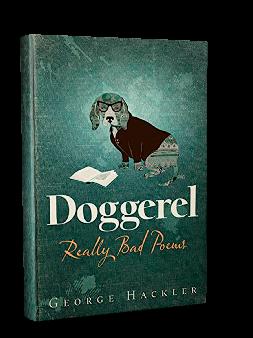
- Reader Views
“…this book is recommended to those who like to delve into the nitty-gritty of existence and the many emotions these experiences can elicit. I would particularly appeal to those who appreciate nononsense writing, and glimpses of lives other than their own.”
- Book Review Directory


Winner of the 2020 Prix Femina, Human Nature charts the transformation of the French countryside through the story of one family against a backdrop of the 1976 drought and the storms of 1999.

As France prepares to see in a new millennium, the country is battered by apocalyptic storms. But holed up on the farm where he and his three sisters grew up, Alexandre seems less afraid of the weather than of the police turning up. Alone in the darkness, he reflects on the end of a rural way of life he once thought could never change. And his thoughts return to the baking hot summer of 1976, when he met Constanze, an environmental activist who fell for the beauty of the countryside, and was prepared to use any means to save it.
Serge Joncour’s impassioned, ambitious novel charts three decades of political, social, and environmental upheaval through the lives of a French farming family, as the delicate bond between the human and natural worlds threatens to snap.
Serge Joncour is a French novelist and screenwriter. He was born in Paris in 1961 and studied Philosophy at university before deciding to become a writer. His 2016 novel Repose-toi sur moi won the Prix Interallié and was published in English in March 2022 under the name Lean on Me.
Louise Rogers Lalaurie is a translator from the French and the author of Matisse: The Books. Her translations have been shortlisted for the CWA Daggers and Best Translated Book Awards.

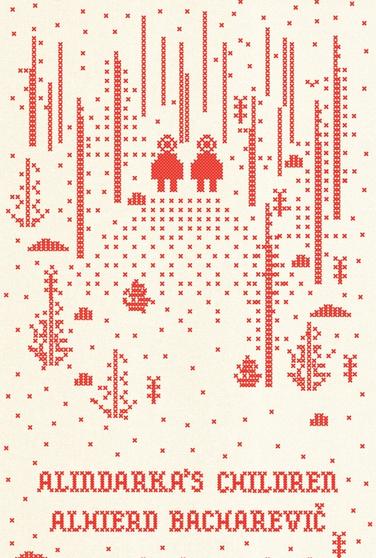
Alindarka’s Children tells the story of Alicia and her brother Avi. The children live in a camp where camp leaders teach them to forget Belarusian and to speak Russian instead. The camp leaders use drugs as well as surgery on the larynx to make children forget their native language. When Alicia and Avi manage to escape into the forest through a hole cut in the wire, they have to fend for themselves as camp leaders pursue them. As a result, Alindarka’s Children is an adult and literary Hansel and Gretel adventure that also works as a manifesto for the Belarusian language.
Its translation into Scots and English well reflects the use of Russian and Belarusian in the book.
LHIERD BACHAREVIČ was born in Minsk in 1975. In the 1990s, he was the lead singer of the Belarusian-language punk band Pravakacyja (“Provocation”). Bacharevič has worked as a teacher of Belarusian and a journalist, and is one of the founders of the avant-garde group Bum-Bam-Lit. Bacharevič was awarded the 2021 Erwin Piscator Prize, and nominated for the 2021 Republic of Consciousness Prize. His books have been translated into German, French, Polish and Russian. He recently fled Belarus and is now based in Austria. JIM DINGLEY has translated fiction by Uładzimir Arłou, Natalka Babina, Tania Skarynkina, and Alhierd Bacharevič. PETRA REID is a translator and the author of MacSonnetries.
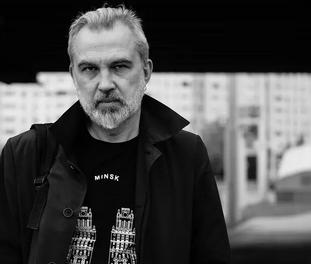
In the city of San Agustín de Tango, the banal is hard to tell from the bizarre. In a single day, a man is guillotined for preaching the intellectual pleasures of sex; an ostrich in a zoo, reversing roles, devours a lion; and a man, while urinating, goes bungee jumping through time itself—and manages to escape. Or does he?
Witness the weird machinery of Yesterday, where the Chilean master Juan Emar deploys irony, digression, and giddy repetitions to ratchet up narrative tension again and again and again, in this thrilling whirlwind of the ecstatically unexpected—all wed to the happiest marriage of any novel, ever.

Juan Emar is the pen name of Chilean writer, painter, and art critic Álvaro Yáñez Bianchi. Born in Chile in 1893, he was a strong advocate of the artistic avant-garde of the 1920s and 30s, and his critical writings helped revolutionize the art scene in his country. A cult of Emarians, however, always persisted, and after several rediscoveries in the Spanish-speaking world, he is finally getting his international due with the English-language debut of Yesterday, deftly translated by Megan McDowell. Emar’s work offers unique and delirious pleasures, and will be an epiphany to anglophone readers.

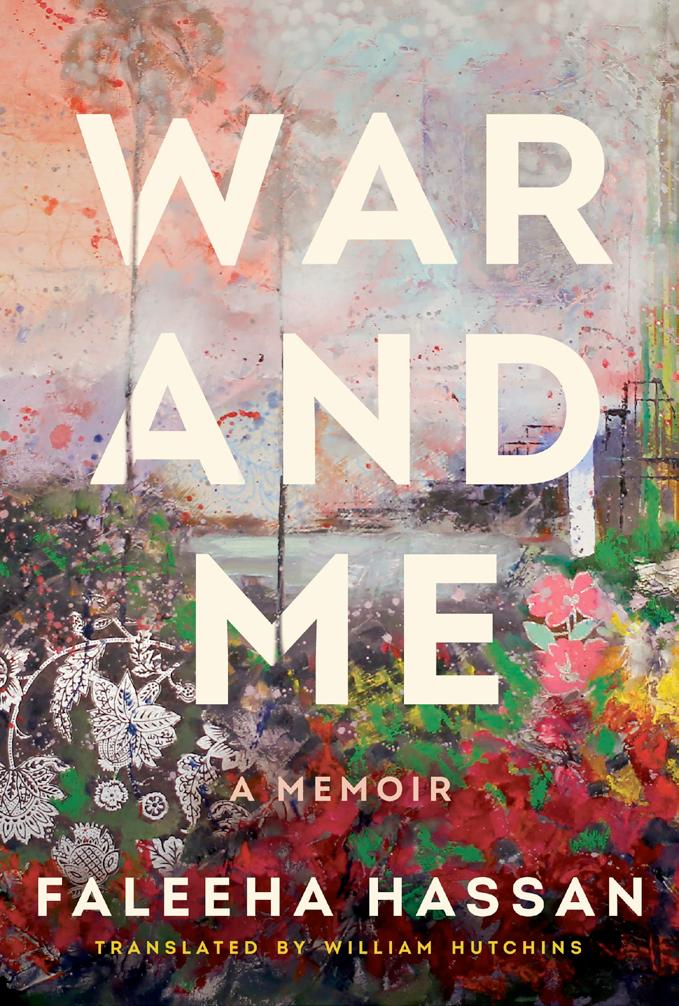
 BY FALEEHA HASSAN AND TRANSLATED BY WILLIAM HUTCHINS
BY FALEEHA HASSAN AND TRANSLATED BY WILLIAM HUTCHINS
An intimate memoir about coming of age in a tight-knit working-class family during Iraq’s seemingly endless series of wars.
Faleeha Hassan became intimately acquainted with loss and fear while growing up in Najaf, Iraq. Now, in a deeply personal account of her life, she remembers those she has loved and lost. As a young woman, Faleeha hated seeing her father and brother go off to fight, and when she needed to reach them, she broke all the rules by traveling alone to the war’s front lines–just one of many shocking and moving examples of her resilient spirit. Later, after building a life in the US, she realizes that she will coexist with war for most of the years of her life, and so chooses to focus on education for herself and her children. In a world on fire, she finds courage, compassion, and a voice. A testament to endurance and a window into unique aspects of life in the Middle East, Faleeha’s memoir offers an intimate perspective on something wars can’t touch–the loving bonds of family.
Faleeha Hassan is a poet, playwright, writer, teacher, and editor who earned her master’s degree in Arabic literature and has published twenty-five books. A nominee for both the Pulitzer and Pushcart Prizes, she is the first woman to write poetry for children in Iraq. Her poems have been translated into twenty-one languages, and she has received numerous awards throughout the Middle East. Hassan is a member of the Iraq Literary Women’s Association, the Sinonu Association in Denmark, the Society of Poets Beyond Limits, and Poets of the World Community. Born in Iraq, she now resides in the United States.
Out of the impoverished coal regions of Ukraine known as the Donbass, where Russian secret military intervention coexists with banditry and insurgency, the women of Yevgenia Belorusets’s captivating collection of stories emerge from the ruins of a war, still being waged on and off, ever since the 2014 Revolution of Dignity.
Through a series of unexpected encounters, we are pulled into the ordinary lives of these anonymous women: a florist, a cosmetologist, card players, readers of horoscopes, the unemployed, and a witch who catches newborns with a mitt.
One refugee tries unsuccessfully to leave her broken umbrella behind as if it were a sick relative; a private caregiver in a disputed zone saves her elderly charge from the angel of death; a woman sits down on International Women’s Day and can no longer stand up; a soldier decides to marry war.

Belorusets threads these tales of ebullient survival with a mix of humor, verisimilitude, the undramatic, and a profound Gogolian irony. She also weaves in twenty-three photographs that, in lyrical and historical counterpoint, form their own remarkable visual narrative.
ABOUT THE AUTHOR Yevgenia Belorusets is a Ukrainian photographer, artist and writer. She lives and works in Berlin and Kiev. She is the co-founder of the magazine for literature and art "Prostory" (since 2008) and since 2009 a member of the curatorial group "Hudrada". She works with video, photography, installations at the intersection of art, literature and social activism. She is involved in a number of social initiatives, including the Art Workers' Self-defense Initiative (AWSI) and has participated in numerous Ukrainian and international exhibitions on social criticism and socially engaged art.

Eighty-year-old Ma slips into a deep depression after the death of her husband. Despite her family’s cajoling, she refuses to leave her bed. Her responsible eldest son, Bade, and dutiful, Reebok-sporting daughter-in-law, Bahu, attend to Ma’s every need, while her favorite grandson, the cheerful and gregarious Sid, tries to lift her spirits with his guitar. But it is only after Sid’s younger brother—Serious Son, a young man pathologically incapable of laughing—brings his grandmother a sparkling golden cane covered with butterflies that things begin to change.
With a new lease on life thanks to the cane’s seemingly magical powers, Ma gets out of bed and embarks on a series of adventures that baffle even her unconventional feminist daughter, Beti. She ditches her cumbersome saris, develops a close friendship with a hijra, and sets off on a fateful journey that will turn the family’s understanding of themselves upside down.
Geetanjali Shree was born in Mainpuri, India, in 1957. Tomb of Sand is the first of her books to be published in the UK. She has received and been shortlisted for a number of awards and fellowships, and currently lives in New Delhi.
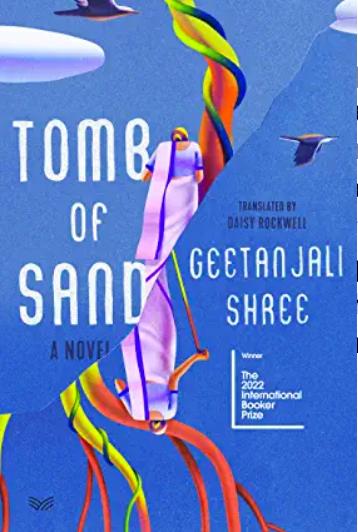

 BY STINE PILGAARD
TRANSLATED FROM THE DANISH BY HUNTER SIMPSON
BY STINE PILGAARD
TRANSLATED FROM THE DANISH BY HUNTER SIMPSON
A young mother follows her partner to a rural community in West Jutland, Denmark, where he teaches at the local school for adult education. Isolated, she is forced to find her way in a bewildering community and in the inscrutable conversational forms of the local population.
A young woman relocates to an outlying community in West Jutland, Denmark, and is forced to find her way, not only in the bewildering environment of the residential Folk High School, where her partner has been hired to teach, but also in the inscrutable conversational forms of the local population. And on top of it all, there’s the small matter of juggling her roles as mother to a newborn baby and advice columnist in the local newspaper. In this understated and hilarious novel, Stine Pilgaard conjures a tale of venturing into new and uncharted land, of human relationships, dilemmas, and the ways and byways of social intercourse.
Stine Pilgaard was born in Århus in 1984 and grew up in Vejlby-Risskov. She graduated from the Writers' School in 2010 and has an MA in Danish and media studies from Århus and Copenhagen University respectively.Stine Pilgaard is fascinated by people and the way in which people talk to each other and talk past each other. Both of Pilgaard's novels take place in a recognizable universe made up of scenes from everyday life and she works with recognizability as a structuring principle in her characters. Most of Pilgaard's texts revolve around love as a phenomenon and she is interested in when it takes place and why it sometimes ends. She has a fondness for places where the individual lets go of inhibitions, and is completely unfiltered.


From an author never before published in the United States, Cursed Bunny is unique and imaginative, blending horror, sci-fi, fairytales, and speculative fiction into stories that defy categorization. By turns thought-provoking and stomachturning, here monsters take the shapes of furry woodland creatures and danger lurks in unexpected corners of everyday apartment buildings. But in this unforgettable collection, translated by the acclaimed Anton Hur, Chung’s absurd, haunting universe could be our own, illuminating the ills of contemporary society.
“The Head” follows a woman haunted by her own bodily waste. “The Embodiment” takes us into a dystopian gynecology office where a pregnant woman is told that she must find a father for her baby or face horrific consequences. Another story follows a young monster, forced into underground fight rings without knowing the force of his own power. The titular fable centers on a cursed lamp in the approachable shape of a rabbit, fit for a child’s bedroom but for its sinister capabilities.
Bora Chung has an MA in Russian and East European area studies from Yale University and a PhD in Slavic literature from Indiana University. She currently teaches Russian language and literature and science fiction studies at Yonsei University, and translates modern literary works from Russian and Polish into Korean.
Anton Hur has translated Man Asia Literary Prize-winner Kyung-Sook Shin’s The Court Dancer and Violets, Booker International Prize-longlisted Hwang Sok-yong’s The Prisoner, and many others. He won a PEN/Heim grant for his translation of Bora Chung’s Cursed Bunny. He currently lives in Seoul.
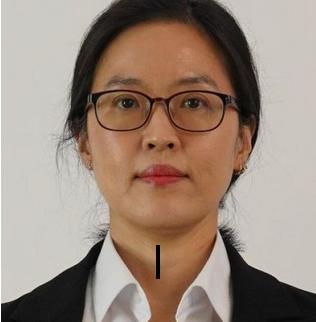
Nominated for the Icelandic Literary Prize, Quake: A Novel is a haunting novel-in-translation about Saga, a woman who comes to after an epileptic seizure on a sidewalk along busy Miklabraut Street.
Her three-year-old son is gone. The last thing she remembers is a double-decker bus that no one else can confirm seeing. Over the following days, Saga’s mind is beset by memories and doubts. What happened before her seizure? Who can she trust? And how can she make any sense of her emotions when her memory is so fragmented?
Hailed as Auður Jonsdottir's "best-written novel so far," Quake is a shocking and revelatory exploration of the blurred lines between fact and fiction, reality and imagination, and where mother ends and child begins.


Auður Jónsdóttir was born on March 30, 1973.Auður Jónsdóttir is one of the most accomplished authors writing in Icelandic today. Her novels have aroused interest in Iceland, as well as abroad, for their rare blend of incisive candor and humor. She won the Icelandic Literary Prize for The People in the Basement and the Icelandic Women’s Literature Prize for Secretaries to the Spirits. Both of these novels were nominated for the Nordic Council’s Literature Prize. Auður’s latest novel, Quake (Stóri skjálfti), became her most successful publication to date and gathered a huge following among Icelandic readers of all ages, strengthening her position as an important writer of her generation.
 BY IRENE SOLÀ
BY IRENE SOLÀ
A spellbinding novel that places one family’s tragedies against the uncontainable life force of the land itself.
Near a village high in the Pyrenees, Domènec wanders across a ridge, fancying himself more a poet than a farmer, to “reel off his verses over on this side of the mountain.” He gathers black chanterelles and attends to a troubled cow. And then storm clouds swell, full of electrifying power. Reckless, gleeful, they release their bolts of lightning, one of which strikes Domènec. He dies. The ghosts of seventeenth-century witches gather around him, taking up the chanterelles he’d harvested before going on their merry ways. So begins this novel that is as much about the mountains and the mushrooms as it is about the human dramas that unfold in their midst.
Irene Solà is a Catalan writer and artist, winner of the European Union Prize for Literature, the Documenta Prize for first novels, the Llibres Anagrama Prize, and the Amadeu Oller Poetry Prize. Her artwork has been exhibited in the Whitechapel Gallery.

Fernanda and Annelise are so close they are practically sisters: a double image, inseparable. So how does Fernanda end up bound on the floor of a deserted cabin, held hostage by one of her teachers and estranged from Annelise?
When Fernanda, Annelise, and their friends from the Delta Bilingual Academy convene after school, Annelise leads them in thrilling but increasingly dangerous rituals to a rhinestoned, Dior-scented, drag-queen god of her own invention. Even more perilous is the secret Annelise and Fernanda share, rooted in a dare in which violence meets love. Meanwhile, their literature teacher Miss Clara, who is obsessed with imitating her dead mother, struggles to preserve her deteriorating sanity. Each day she edges nearer to a total break with reality.
Interweaving pop culture references and horror concepts drawn from from Herman Melville, H. P. Lovecraft, and anonymous “creepypastas,” Jawbone is an ominous, multivocal novel that explores the terror inherent in the pure potentiality of adolescence and the fine line between desire and fear.

Mónica Ojeda Franco is an Ecuadorian writer. She obtained her bachelor's degree from the Universidad Católica de Santiago de Guayaquil, followed by a master's degree from the Universidad Pompeu Fabra de Barcelona. She is currently working on her doctorate in Madrid.
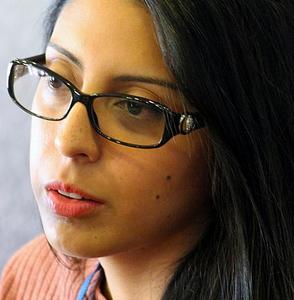
This is Antoine’s life story: an ill-fated romance between her upper-class mother and farmer father; a childhood spent deep in the countryside; the splendors and slums of Guadeloupe’s great city, Pointe-à-Pitre; the eruption of modernity; the rifts in a deeply hierarchical society under colonial rule—and the reasons she left it all behind. And to whom might she tell it?
A young woman born on the outskirts of Paris yearns to understand her lineage and métis identity. Her memories of occasional childhood visits are all that connects her to her father’s home. It is at her request that old Aunt Antoine, the eccentric and indomitable matriarch of the Ezechiels, unwinds the unforgettable tale of their family and with it a rich, layered account of Guadeloupe and its diaspora over the course of the twentieth century.
Spanning decades as it crosses the Atlantic, with lush language and vivid descriptions, Estelle-Sarah Bulle’s Where Dogs Bark with Their Tails examines the legacies of capitalism and colonialism, what it means to be caught between worlds, how it feels to lose our most beloved, and what stories might help us reconcile past, present, and future.
Estelle-Sarah Bulle was born in Créteil, France, in 1974 to a West Indian father and a Belgian mother. She studied in Paris and Lyon and now resides in Val-d’Oise, France.
Where Dogs Bark with Their Tails is her first novel.The book, devoted to the adventures of a West Indian family between Guadeloupe and mainland France , received rave reviews and won several prizes, including the Stanislas Prize for the first novel in 2018 as well as the Eugène-Dabit Prize for the populist novel .


A newly translated collection of fiction by the influential Italian modernist, continuing on his landmark work Zeno's Conscience.
A Very Old Man collects five linked stories, parts of an unfinished novel that the great Triestine Italo Svevo wrote at the end of his life, after the international success of Zeno’s Conscience in 1923.

Here Svevo revisits with new vigor and agility themes that fascinated him from the start—aging, deceit, and self-deception, as well as the fragility, fecklessness, and plain foolishness of the bourgeois paterfamilias—even as memories of the recent, terrible slaughter of World War I and the contemporary rise of Italian fascism also cast a shadow over the book’s pages.
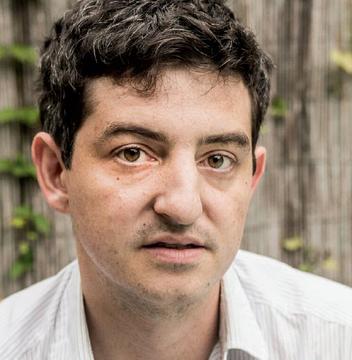
It opens with “The Contract,” in which Zeno’s manager, the hardheaded young Olivi, expresses, like the war veterans who were Mussolini’s early followers, a sense of entitlement born of fighting in the trenches. Zeno, by contrast, embodies the confusion and paralysis of the more decorous, although sleepy, way of life associated with the onetime Austro-Hungarian Empire which for so long ruled over Trieste but has now been swept away.
Nathaniel Rich is an American novelist and essayist. Rich is the author of several books, was an editor for The Paris Review, and has contributed to several major magazines including The Atlantic, Harper's Magazine, and The New York Review of Books. Nathaniel Rich is the author of Second Nature; Losing Earth, a finalist for the PEN/E.O. Wilson Literary Science Award; and the novel King Zeno.
Italo Svevo (1861–1928) was an Italian writer, businessman, novelist, playwright, and short story writer. He was a close friend of Irish novelist and poet James Joyce and was a pioneer of the psychological novel in Italy.
Inspired by Simone Weil’s concept of ‘decreation’ and drawing on Batak and Christian cultural elements, in Happy Stories, Mostly Pasaribu puts queer characters in situations and plots conventionally filled by hetero characters.

In one story, a staff member is introduced to their new workplace - a department of Heaven devoted to archiving unanswered prayers. In another, a woman’s attempt to vacation in Vietnam after her gay son commits suicide turns into a nightmarish failed escape. And in a speculative-historical third, a young man finds himself haunted by the tale of a giant living in colonial-era Sumatra.
A writer of poetry, fiction and non-fiction, Norman Pasaribu was born in Jakarta, Indonesia, in 1990.
His debut poetry collection Sergius Mencari Bacchus (translated by Tiffany Tsao as Sergius Seeks Bacchus) won first prize in the 2015 Jakarta Arts Council Poetry Manuscript Competition, and was shortlisted in the 2016 Khatulistiwa Literary Award for Poetry.

From a major new international voice, mesmerizing, inventive fiction that probes the tender places where human longings push through the cracks of a breaking world. Under Cancún’s hard blue sky, a beach boy provides a canvas for tourists’ desires, seeing deep into the world’s underbelly. An enigmatic encounter in Copenhagen takes an IT consultant down a rabbit hole of speculation that proves more seductive than sex. The collapse of a love triangle in London leads to a dangerous, hypnotic addiction. In the Nevada desert, a grieving man tries to merge with an unearthly machine.
After the Sun opens portals to our newest realities, haunting the margins of a globalized world that’s both saturated with yearning and brutally transactional. Infused with an irrepressible urgency, Eika’s fiction seems to have conjured these far-flung characters and their encounters in a single breath. Juxtaposing startling beauty with grotesquery, balancing the hyperrealistic with the fantastical—“as though the worlds he describes are being viewed through an ultraviolet filter,” in one Danish reviewer's words—he has invented new modes of storytelling for an era when the old ones no longer suffice.
After the Sun, his second book, has confirmed Jonas Eika as one of Denmark’s most exciting writers.
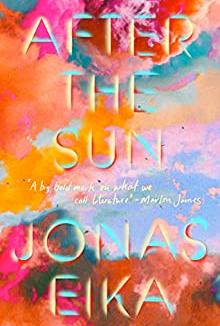
Jonas Eika was born in 1991 in Aarhus, Denmark. His debut novel, Marie House Warehouse, was awarded the Bodil & Jørgen Munch-Christensen Prize for emerging Danish writers in 2016.
After the Sun was awarded the Nordic Council Literature Prize in 2019, as well as the Michael Strunge Prize, the Montana Prize for Fiction, and the Blixen Literary Award. Eika currently lives in Copenhagen.


Met by rave reviews in The New Yorker, The New York Times, and more, this stunning translation of Violaine Huisman’s “witty, immersive autofiction showcases a Parisian childhood with a charismatic, depressed parent” (Oprah Daily). Beautiful and magnetic, Catherine, a.k.a. “Maman,” smokes too much, drives too fast, laughs too hard, and loves too extravagantly, and her daughter Violaine wouldn’t have it any other way. But when Maman is hospitalized after a third divorce and a breakdown, everything changes. Even as Violaine and her sister long for their mother’s return, once she’s back Maman’s violent mood swings and flagrant disregard for personal boundaries soon turn their home into an emotional landmine. As the story of Catherine’s own traumatic childhood and adolescence unfolds, the pieces come together to form an indelible portrait of a mother as irresistible as she is impossible, as triumphant as she is transgressive.
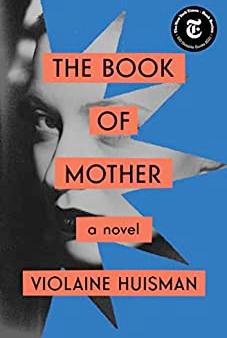
With spectacular ferocity of language, a streak of dark humor, and stunning emotional bravery, The Book of Mother is an exquisitely wrought story of a mother’s dizzying heights and devastating lows, and a daughter who must hold her memory close in order to surrender, and finally move on.
Violaine Huisman was born in Paris in 1979, but has lived and worked in New York for over 20 years. In New York, she ran the Brooklyn Academy of Music’s literary series and has also organized multidisciplinary arts festivals across the city. The Book of Mother is her debut novel. Originally published by Gallimard under the title Fugitive parce que reine, it has been awarded multiple literary prizes, including the Prix Françoise Saga and the Prix Marie Claire.
With a warm yet political humor, Ukraine’s most famous novelist presents a balanced and illuminating portrait of modern conflict.


Little Starhorodivka, a village of three streets, lies in Ukraine's Grey Zone, the no-man's-land between loyalist and separatist forces. Thanks to the lukewarm war of sporadic violence and constant propaganda that has been dragging on for years, only two residents remain: retired safety inspector turned beekeeper Sergey Sergeyich and Pashka, a rival from his schooldays. With little food and no electricity, under constant threat of bombardment, Sergeyich's one remaining pleasure is his bees. As spring approaches, he knows he must take them far from the Grey Zone so they can collect their pollen in peace. This simple mission on their behalf introduces him to combatants and civilians on both sides of the battle lines: loyalists, separatists, Russian occupiers and Crimean Tatars. Wherever he goes, Sergeyich's childlike simplicity and strong moral compass disarm everyone he meets. But could these qualities be manipulated to serve an unworthy cause, spelling disaster for him, his bees and his country?
Andrey Yuryevich Kurkov is a Ukrainian author and public intellectual who writes in Russian. He is the author of 19 novels, including the bestselling Death and the Penguin, nine books for children, and about 20 documentary, fiction and TV movie scripts.“I write in Russian. I am not a Russian writer,” he said. “Literature is dead in Russia.”
A cult classic by Morocco’s foremost writer of life on the margins.
Malika Moustadraf (1969–2006) is a feminist icon in contemporary Moroccan literature, celebrated for her stark interrogation of gender and sexuality in North Africa.
Blood Feast is the complete collection of Moustadraf’s published short fiction: haunting, visceral stories by a master of the genre. A teenage girl suffers through a dystopian rite of passage, a man with kidney disease makes desperate attempts to secure treatment , and a mother schemes to ensure her daughter passes a virginity test.
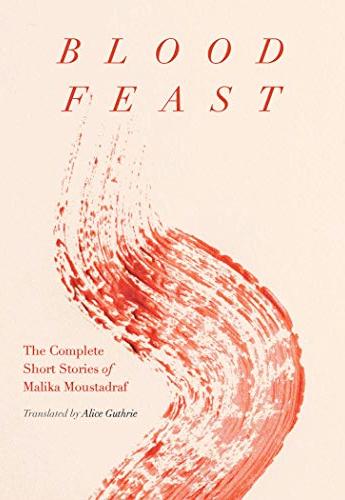
Delighting in vibrant sensory detail and rich slang, Moustadraf takes an unflinching look at the gendered body, social class, illness, double standards, and desire, as lived by a diverse cast of characters. Blood Feast is a sharp provocation to patriarchal power and a celebration of the life and genius of one of Morocco’s preeminent writers.
Alice Guthrie is an independent translator, editor, and curator specializing in contemporary Arabic writing. Widely published since 2008, her work has often focused on subaltern voices, activist art and queerness (winning her the Jules Chametzky Translation Prize 2019). Her bilingual editorial and research work has been part of the movement to decolonise Arabic-English literary translation, as well as its evaluation and publication.

Far from Tahiti’s postcard-perfect beaches, Ma and Auguste and five of their nine children live a hand-to-mouth life in destitute, run-down Tenaho. Nine-year-old Pina, abused and neglected in equal measure, is the keeper of her family’s secrets, though the weight of this knowledge soon proves to be a burden no child could ever bear.
A victim of her father’s alcoholic rages and the object of her mother’s anger and indifference, Pina protects her younger sister, Moïra, as best she can, but a tragic accident upsets the precarious equilibrium of the family, setting them on a path to destruction. The fault lines of her family, descendants of Mā’ohi warriors who once fended off European settlers, begin to shift and crack open, laying bare how the past shapes and haunts the present: her brother Pauro falls in love with a Frenchman, her sister Rosa sinks into sexual exploitation as a futile means of escape, her eldest brother August Junior’s addictions and temper may lead him into ruin, and Hannah, the oldest daughter who had escaped to France, is beckoned back home, fearing the worst.
Titaua Peu is a Tahitian author known for her politically charged, realistic portrayal of the effects of colonialism on contemporary Polynesia. Peu's unsparing first novel, Mutismes, was published in 2003, sparking immediate scandal and making her the youngest-ever published Tahitian author at age twenty-eight.


BOOKSTAGRAM
Each issue we feature a new bookstagrammer highlighting some of their amazing work.

FAVORITE FALL READ: THE INVISIBLE LIFE OF ADDIE LAURE
@emy_Reads: My name is Emy, I’m 23, Interior design major. I love all art that makes me feel something. I enjoy practicing yoga and cooking for my loved ones.
@ emy_Reads : I started my Instagram page in 2016 not knowing what bookstagram was. I remember joining the photo challenges in a readathone called The reading rush (ex Booktubeathone). At first, I didn’t post anything other than these challenges. Then in 2019, I decided to regularly share my love of reading books with everyone.
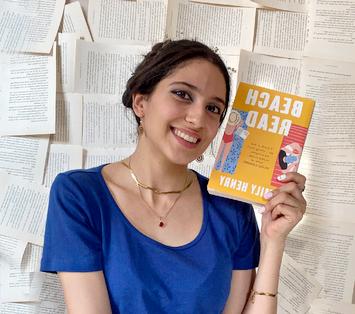
@ emy_Reads : Honestly, I believe one of the beauties of reading is that we get to jump into different characters each time we pick up a book.
FAVORITE GENRE: CONTEMPORARY ROMANCE AND FANTASY.
Reading from different cultures helps us be more aware of our humanity, and that we all share similar difficulties. It also opens our eyes to the fact that there is a big side of the world that will always be hidden from us. That’s why we should always educate ourselves in order to empathize with each other, and treat one another with kindness whenever we can.





Riding the icy, moonlit sky—
They took the war to Hitler.
Their chances of survival were less than fifty percent.
Their average age was 21.
This is the story of just one bomber pilot, his crew, and the woman he loved. It is intended as a tribute to them all.

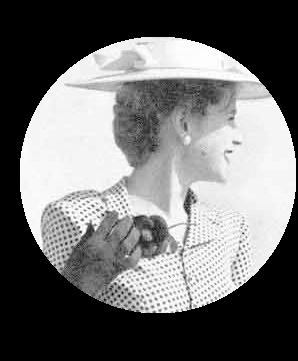
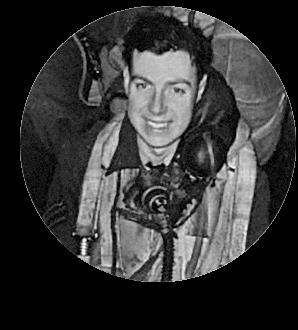


 By Helena P. Schrader
By Helena P. Schrader
a bite from your next favorite book.
SHELF UNBOUND’S RECOMMENDED READING
 BY MARK MILLER
BY MARK MILLER
I have a Rural Hegemony insurance license under the name of Yevgeny Butterworth, and though the name is unbelievable, I can sell life, home, and crop insurance. According to my cover story, my mother came to America from Irkutsk in the 70s, affianced to my father, one Peter Butterworth, who had been contracted out by the US navy to study their hydroelectric power system. After that, my alias becomes murky, and I tell people that I was raised by test tubes in the wild. Honestly, the slightest inspection of my driver’s license and social security card would turn up unanswerable questions, so I am amazed that I have been getting into insurance conferences worldwide for three years now. I know of another insurance secret agent, real name unknown, but convincingly documented as Alvin Merrick, who claims that the best way is to stumble upon a dead insurance agent who is about your age, then collect his birth certificate, and assume his identity. But if you’re a guy like me, you can’t wait around for an insurance agent to drop dead right in front of you. It leaves too much to chance. Guys like me have to make their own luck.
At the front desk they see that all my paperwork is in order, and I am directed to the first panel discussion on
the slate, It’s None of Your Goddamn
Business:
The Need for Confidentiality in Business Income Policies. There I am one of 75 wellsuited men and women seated in the large lecture hall. The presenter hails from Michigan and wants us to know that careless disclosures can prove a legal nightmare in the world of BIPs. He shares slide after slide of examples of insurance agents playing fast and loose with their ethics. The room watches attentively, and I study the faces to see if I can tell who is here for the real conference, the secret conference. I am snapped from my study when the presenter slams his fist down on the lectern.
“THAT’S when you get into trouble! Ladies and gentlemen, they get you a premium roast cup of coffee, they set a slice of homemade pie in front of you, they splash a little Irish cream in your cup…and what do you THINK is going to happen?”
He walks the room and makes eye contact with several people, drawing them in.
“Yeah,” he continues. “By then you’re old friends. They tell you a secret about their company— maybe their infrastructure is in disrepair, maybe they pay off the inspectors— nothing too big, nothing too…” he makes air quotes, “‘out of the ordinary.’ And then pretty soon you are disclosing what you know about other companies, rival companies. Pretty soon you’re giving them dirt on their competition, and THAT isn't the WORST of it.”
He writes WORST on the whiteboard behind him and circles it. He turns to face us again.
“Then I guarandamntee you, you will start
comparing policies, talking shit about who gets what deal, and why… and then you are in a heap of trouble! Because sure as fuck, they are going to run to the NAIC and blab their fat fucking mouths, and then you’re going to be left out in the rain with your dick in your hand wondering what went wrong and why you are being brought up on federal fucking charges.
Am I right?”
The crowd murmurs assent, but he is unsatisfied.
“I said, ‘Am I RIGHT?’”
The crowd grants him a loud YEAH! He returns to the lectern, gathers his papers, gives a peremptory look at the crowd and
finishes:
“As I said, now is the time of the corporate-nation state. Global trade treaties have made multinational conglomerates all-powerful. The NAIC can’t stand up to it. Nothing can. Show me a politician who is not sponsored by an MNC, and I will show you who’s got your back. But since you can’t show me JACK SHIT, I’m gonna return the favor and tell you up front that there IS NO protection for you. That’s why in business income policies, I always say, It’s none of your goddamn business!” He throws his lecture notes in the air in disgust and storms
"Mark Miller’s absurdist adventure, The Librarian at the End of the World is a satirical romp across America. Tracked by the NSA, Ramdas Bingaman and his wife, Colletta, embark on a vacation that soon becomes a quest to avenge his twin brother’s death, to reclaim his crown as champion speedbather, and to acquire enough loot to invest in a line of gourmet cheeses made from celebrity bacteria. Ramdas is soon entangled in the web of an insurance company turf war, an old love’s rekindled affections, and the theft of his prized hand towel, which was once used by Carrie Fisher on the Return of the Jedi set.
Part action, part thriller, all comedy, The Librarian at the End of the World fires on all cylinders. Fans of Thomas Pynchon and David Foster Wallace will revel in the ridiculousness that is Miller’s America."
 BY PETE HSU
BY PETE HSU
They know of each other in the coincidental kind of way. She is the cousin of his cousin’s boyfriend. Also, they have almost the same last name. His is Chiang. Hers is Chang. All this makes it sound like they are related, but they aren’t. When they first meet in real life, he sees her in the kitchen at a party. She’s drinking a soda out of the can. She’s got something baking in the oven, like a dessert. She takes it out. It’s graham crackers and some kind of yellow sauce. It looks terrible, but she looks great, pretty like in her pictures, but pale and also shorter. Less Korean, if that makes sense, less assertive, less sociable. He guesses those kinds of things show differently in pictures. But she moves like she’s floating in water, out of time with the music, but in time with the deep, the invisible, like she’s one with God or the ocean. These
are the kinds of things he might say to describe someone he wants to sleep with. He does want to sleep with her. He also thinks he could be in love with her, but she isn’t available and neither is he. So, he keeps his distance. He hides out in the kitchen. He drinks several beers. He keeps count in his head. Seven. That’s too many. He’s drunk, maybe. He’s a quiet drunk. He is also a quiet sober person.
She keeps coming to talk to him as if they’re flirting. He doesn’t think she is good at flirting. He is not good at flirting. He doesn’t know for sure that they’re flirting, but she touches his arm when she talks to him. This is maybe the fourth time she’s touched his arm like this. She says, “I don’t know why I keep touching your arm.”
He pays close attention to her exact words: “I don’t know why I keep touching
your arm.” He tries to interpret this. He wants it to tell him that she wants to sleep with him. He also wants it to tell him how to talk to her. He wants to say things to her. He can feel his heart in his throat. Then the moment passes. Her boyfriend comes and joins their conversation. Her boyfriend’s name is Walt Gourley. Walt is a tall, muscular Scots-Irish guy with Pokémon tattoos up and down his left arm. He likes Walt. He’s a fan of Pokémon. And also, Walt talks a lot, which means he doesn’t have to talk as much.
Walt says, “Who’s this?”
He wonders why Walt doesn’t recognize him. They go to the same school. They’re almost the same major. His is Literature. Walt’s is Creative Writing.
She says, “This is James Chiang’s cousin.”
He puts his hand out to Walt. He’s about to introduce himself when Walt slaps his hand away and gives him a hug, “Hey, no way, Jimmy Chiang’s cousin? I fucking love Jimmy.”
Walt holds him for a long time. It’s a full contact hug, chest to chest, stomach to stomach, penis to penis. He arches his back to keep their penises from touching. It doesn’t help. Walt is very strong. He gives in. He
relaxes. He hugs Walt back. It feels really great. He is about to lay his head on Walt’s shoulder when Walt lets go, keeping one arm around his neck, Walt grabs her with the other arm so it’s a Walt sandwich, him to the left and her to the right. He wonders if something sexual could happen with the three of them. It’s not exactly what he wants, but he wouldn’t say no either.
Then his girlfriend calls from across the room. He sees her calling. She’s hard to miss. She is tall and has bright blonde hair. It’s amazing, and it’s her real hair.
Walt says, “That your girl?”
He nods. “Maggie.”
He waits for Walt to say something approving. Walt doesn’t say anything
approving. Maggie motions for him to come over. Walt holds tight and then motions for Maggie to come to them. Maggie tilts her head to the side and frowns.
He says, “I better go.” Walt grabs the back of his neck and shakes him gently, and says, “Alright, Jimmy’s cousin. Take it easy then.”
He looks past Walt and says, “See you later, Hanna.”
It’s loud. He doesn’t know if Hanna hears him. He turns and starts to walk to Maggie. As he gets turned around, he feels a slap on his ass. He turns back. It’s Walt.
Full of warmth, terror, and underhanded humor, If I Were the Ocean, I'd Carry You Home, Pete Hsu's debut story collection, captures the essence of surviving in a life set adrift. Children and young people navigate a world where the presence of violence and death rear themselves in everyday places: Vegas casinos, birthday parties, church services, and sunny days at the beach. Each story is a meditation on living in a world not made for us--the pervasive fear, the adaptations, the unexpected longings. A gripping and energetic debut, Hsu's writing beats with the naked rhythms of an unsettled human heart.

 BY JONATHAN WOODS
BY JONATHAN WOODS
The gunfire seemed to come from behind the bunkhouse where a tinroofed shed building resided, its open bays filled with a miscellany of obsolete equipment rusting into oblivion, a hay bailer, a flatbed wagon, a battered and boxy pickup from yesteryear (tireless and raised up on wood blocks) and more. Deciding the shooter was not aiming in Ray’s direction, curiosity got the better of him. With a groan of pain, he eased to his feet and headed outside.
Rounding the bunkhouse, Ray came upon an exceptional booty shunted into weathered Wranglers, its curves a geometer’s daydream. Traveling upward, his eyes took in additional details: black (pushup style) bra beneath white blouse, emu-ish (in length but sans feathers) neck, well remembered (how could he forget) platinum-blond tresses
shimmering like corn silk in the sunlight.
Oh, shit. It was the freakydeaky daughter of the Cross clan. And this time she was armed with a serious weapon—a 9mm Taurus semi-auto. She clearly had a thing for guns.
But maybe she hadn’t noticed his arrival. Was there still time (a split second or two) in which to slip away into the shadows of the afternoon?
Even as his nose detected a whiff of perfume layering over the pungent tang of nitroglycerin from the discharged weapon, Loretta turned and cast him a toothy smile that, based on past experience, could have been viewed as a psycho version of the Cheshire Cat. Damn. She’d caught him. “How’s it going?” asked Ray.
The more he studied the woman, the more he
wondered whether her bank of sparkling choppers were meant as an ordinary friendly greeting? Or were they exhibit one in evidence of her deranged persona waiting in the wings to emerge at dusk like a bat from under a bridge? A glittering white enamel cover-up.
Her two center upper incisors were prominent and rabbity, a detail he’d missed on their previous encounter. A momentary urge to offer her a carrot passed through Ray’s mind, then dove headfirst down whatever wormhole captured and defanged such
oddball thoughts. And what was that tiny fuzzy thing sitting on Loretta’s shoulder? An hallucination? A conversation starter? A devil’s familiar? No, it was a goddamn mini monkey showcasing a mini satanic smirk. Ray eased into a mental shrug of surrender. Whatever floats your boat, darlin’.
“You’re the feral hog hunter?” said Loretta. The question mark in her voice suggested she was meeting him for the first time. Not true. Her eyes, hidden behind posh-looking sunglasses, told him less than diddly-squat. “I guess you could say that. Though I think I’m being typecast. Sure enough the hogs left alive out there have already nailed up a wanted poster with my likeness on it. But you can just call me Ray,
ma’am. Ordinary, everyday Ray Puzo at your service.”
“Well, you surely do look like a killer,” she said. “Of hogs, I mean.”
Ray let that one go by. The seconds ticked past, she deciding he was rather good looking, in a swarthy foreigner, odd-duck sort of way, he concluding that, kooky or not, she was a damn fine specimen of womankind, pretty face, exceptional boobs and all, if maybe a tad heavyhanded in the stomach, hip and thigh departments.
“What happened to you?” she asked
“You mean the eye? Ran into a doorknob trying to peek through the keyhole into the next room where your foreman Lamont was engaged in fornication with one of the
domestic help.”
A hoot of wild laughter burst from her mouth. Her body shook. Her head jerked backward nearly losing the cowgirl hat to the dirt. He remembered that laugh from their first meeting—a little unsettling now.
“Somehow I just can’t picture Lamont in that situation,” she said and laughed again. Ray shrugged. It wasn’t that funny. She cocked her hip.
“I heard you went into town and got the shit kicked out of you.”
“You win some, you lose some,” said Ray.
Ray Puzo, ex-Special Forces sniper, is hired to rid the vast Cross Bar cattle ranch in South Texas of its feral hog problem. Due to radiation and other pollution the hogs have become super-brainy. Faced with extinction, the hogs organize and fight back. Humans and hogs face off in an epic battle between good and evil—but who is good and who is evil is an open question.
Part pulp noir. Part dystopian Gothic western. Part satiric magic realism antiwar sex farce, Hog Wild is the illegitimate offspring of a ménage à trois between and among Orwell’s Animal Farm, George Miller’s The Road Warrior and Verna Bloom of Animal House and High Plains Drifter fame.


We were talking about hiding under our desks when the nukes came. That was the straightfaced suggestion made by people in positions of authority. After the initial blast, we were to wash our hair with strong soap and seek a fallout shelter. There we could live the remainder of our days in sterile comfort, eating canned foods and wondering what the outside world was like. If we survived long enough, we would die of starvation, exposure, or cancer at a more leisurely pace. It was a mundane paradise compared to being incinerated so quickly that only our shadows were left, burned on the sidewalk beneath us. Or beneath where we once stood, you know, a millisecond ago, before we were incinerated.
I swear this is a book about love, and the 80s were supposed to be incidental. But then, Donald Trump was in the news again for no good reason thinking people could imagine, Papa resumed preaching, Florida tried to shove all their gay people back in the closet, the Supreme Court found a matching set of Wham! shirts at the Goodwill, and it was like eighties reruns were playing in all dimensions. At this point, all we would need to have the complete set of Garbage Pail Kids is some good Satanic panic.
But I digress! ‘Round about 1987, we were in history class—Zero, Steve Ham, Snazi (so called because he liked the Surf Nazis Must Die movie, not because he thought there was
Excerpted
a master race that he was part of somehow in spite of his obvious shortcomings) and I—talking about instantaneous death, when the first seedlings of this novel were planted: What if I got lucky and found someone desperate enough to go to prom with me, but then we all died before the big night? I laughed out loud and had to explain myself to the class, which was awkward because no one else got the joke.
Literary
of the
reserved.
Flaming death never fell from the sky, which was a bit of a shame, because prom was shit, too. But if you’ve been keeping up with current events, you might be worried for the first time in a long time that we are all going to die. That’s the feeling of the 80s hitting the fan and blowing back at us. Armageddon of one kind or another was always lurking around the corner. I spent 30 years not thinking about mutually assured destruction, and it would just figure that the second this book was about to come out Russia would start prattling on and on about how awesome its nukes are. I suppose if it comes to blows, it will be less painful than global warming, so everyone
lighten up already. Besides, this is a book about the kind of romance that transcends prom and global annihilation. Love in all its many manifestations reigns supreme. Stick with it. You’ll see. And if you lived through the 80s, you might get a little wistful. But that’s just nostalgia fucking with you.
You can’t go back, nor should you want to. The eighties were shit, so don’t try.
PS. And, Holy Christ, they made a new Top Gun movie.

The Two Headed Lady at the End of the World is an epic love story between a set of conjoined twins and the men who love them, two soldiers stranded in a long-forgotten underground military base, and a sentient CPU who falls for a Pentagon fax machine.
Amanda and Miranda Morgan are run of the mill twins in East Texas, navigating the trials and tribulations of teen romance in the 80s. But what starts as Sweet Valley High turns into Dr. Strangelove when the secret government particle collider project beneath their family farm has an incident, permanently conjoining them.
 BY GILLIAN FRENCH
BY GILLIAN FRENCH
Owl wakes to a sense of wrongness some hours after she’s turned out the light, opening her eyes to elongated shadows stretching tremulous fingers toward the slanted peak of the eaves above. There’s a lamp on downstairs. A glance at her alarm clock shows that it’s nearly midnight— late for Seth and Holly to still be up.
All through supper, hardly any of them spoke. Holly was grim and distracted, Seth up before he even finished chewing his last bite, saying he had some cleaning to do in the sugarhouse before heading out the door into the near dark on one hobbled leg, Owl watching him go with some aching mix of resentment and longing. The sugarhouse is their place; normally she’d join him, pushing the broom over the floorboards or packaging up shipments of pints or gallons of
syrup for stores around the state, but they’re both feeling wounded, unaccustomed to being upset with each other. Now, an elongated human shadow moves across the eaves, and she picks up on a rise in conversation, though at this distance it’s noise without meaning. Sliding out of bed, Owl parts the curtains and kneels at the wooden balustrades of the railing, allowing her a familiar childhood peephole into the living room below. The hammered-brass moose lamp on the side table casts a burnished glow, and firelight shifts behind the woodstove’s glass door. The well-worn leather armchair and couch are mostly visible, and Holly sits directly below—not stretched out with her ankles crossed on the couch arm and a book in her hands, as usual—but in the corner, head slightly lowered, hands resting on her
thighs. A surrender. The letter is back, lying open on the cushion beside her. Seth stands by the gun cabinet, fists jammed into the pockets of his sweatshirt; he’s speaking rapidly, occasionally jerking his head toward Holly, and for a rare moment Owl wishes she’d found a way to make hearing aids work for her, even just for the slightest boost at a time like this.
A brief attempt when she was nine ended with her shoving them into a drawer in frustration and refusing to wear them, unable to stand
the squealing feedback, the unnatural fit, the way they managed to amplify without actually clarifying anything, merely creating a louder, equally confusing maelstrom.
Holly says something, picking up the letter and bringing it with her as she touches his arm, inclining her head. Then the two disappear down the short hallway that leads to their bedroom.

Owl draws out of sight, waiting until one of them returns to shut off the lamp, putting the downstairs to sleep for the night. Did they return the letter to the cupboard?
She walks carefully down the stairs, her stockinged feet landing on the rug with total soundlessness.
No light but the microwave clock and the nightlight plugged in by the baseboard, a strip of cold, starry sky gazing between the muslin curtains.
She checks the cupboard, but the letter isn’t there. Chances are, they still have it with them behind their closed bedroom door. Momentarily at a loss, she tries the trash can, examining what she can see of the contents. A tight ball of paper, mostly buried in one corner, catches her eye, and she fishes it out, unwrapping gingerly. It’s not the letter itself, but the envelope it came in, hand-addressed to Seth and Holly.
His full name heads the return address—it’s been so long since she’s seen it,
let alone heard it spoken— followed by an eight-digit number and a PO box in Concord. The New Hampshire State Prison for Men. The truth of it clings to the paper, to that overcareful writing, more like a boy’s than a man of thirty-eight. And faced with this, the first and only time Joel Dotrice has ever reached out to them since his arrest ten years ago, all Owl can hear is the echo of her child self, damning him to hell— twelve years of it—with one understated phrase: Daddy hit me, and I fell.
Left partially deaf by an early childhood tragedy that ended in her father’s incarceration, seventeen-year-old Owl is now a tracker, an explorer, a wildlife enthusiast, and always her freest self while hiking the steep forested acres surrounding her aunt and uncle’s maple sugar farm, now her home. Owl and her aunt and uncle never speak of the brutal attack that brought her to them. On the day she confronts a stranger trespassing among the maples, Owl’s sheltered existence is blown wide open by Cody—the magnetic, dangerous young man hired to help with the sugaring off. Cody seems to see her, the real her, in a way no one else does. Together, they challenge each other, learn to question their preconceptions, and risk a romance their families are desperate to stop.
 BY JUAN JOSÉ MILLÁS, TRANSLATED BY THOMAS BUNSTEAD
BY JUAN JOSÉ MILLÁS, TRANSLATED BY THOMAS BUNSTEAD
She passed the exam with ease. The psychometric test (fifty questions to answer in twenty minutes) was a snap. The one on taxi laws (fifteen questions in twenty minutes), she also could have done with her eyes closed. She had a gift for memorizing things, and this was what she did here, memorize each and every one of the articles as she once had entire modules on her programming course, about which she had understood nothing. More challenging were the exercises in which one had to identify places in the city on a map with all the street names blanked out. But she scored six out of six on that, as well. She found the idea of this kind of map extremely
suggestive; life itself was a map on which all the street names had been blanked out, everybody filling it in with their own events, events that then turned into the features on the map.
One event that had occurred every morning, while she was studying the taxi laws or practicing psychometric tests, was the music floating in through the bathroom air vent from the thirdfloor apartment. Always opera. Much of it she recognized from film sound tracks; other pieces were more vaguely familiar, things she had heard here and there without ever paying them any mind. And most of the pieces, since it was her first time hearing them, she
found so moving that it was as though they had been part of her musical experience in a past life.
During this time, she bought a number of CDs (Carmen, La Traviata, Aida, The Barber of Seville), and, when she listened to them on her stereo, not only did she not find them moving but they put her on edge. In contrast, when the compositions came drifting in through the air vent, she
Excerpted
with
by Suzanne Mattaboni. Copyright
by Suzanne Mattaboni.
of Suzanne Mattaboni.
would put aside her exam preparations, go into the bathroom, sit down on the bidet or the toilet, and find herself completely overcome with feelings of love—love for whom, she did not know, but certainly some person from another dimension—as though the real music belonged to a reality different from her own and was filtering in through the very cracks separating these dimensions. This idea, which she had come across in an article online, generated in her a fascination from which she found it impossible to extract herself.
When leaving the building now, she always took the stairs, stopping briefly outside the front door of the third-floor apartment below. The music tended to be on loud, and yet it failed to be annoying. She never bumped into the person who lived in the apartment, and she came to think it must be some university student who put music on to study. In her student days, she had met people who were able to concentrate perfectly well with the radio on.
Two days before the taxi license exam,
slightly tired by now of running through the same psychometric tests over and over again and, similarly, of naming streets on the blankedout maps, she decided to take the plunge and go and introduce herself to the person downstairs, the owner of all the opera music.
Excerpted from Let No One Sleep. Copyright © 2018 by Juan José Millás, translation copyright © 2022 by Thomas Bunstead. Published by Bellevue Literary Press: www.blpress.org. Reprinted by permission of the publisher. All rights reserved.

After Lucía loses her job at an IT firm, she has a vision of her future career as a taxi driver, brought on by the intoxicating opera floating through her apartment’s air vent. She obtains her taxi license and meets the neighbor responsible for the music. Calaf is the man’s name, which also happens to be the name of the character in Puccini’s Turandot and the bird Lucía received on her tenth birthday from her long-since-dead mother. When he moves out of her building, Lucía becomes obsessed, driving through Madrid and searching for him on every corner, meeting intriguing people along the way. What follows is a phantasmagoria of coincidence, betrayal, and revenge, featuring Millás’s singular dark humor.

 BY ALYSE MGRDICHIAN
BY ALYSE MGRDICHIAN
Written by Shahriar Mandanipour and translated from Persian by Sara Khalili, Seasons of Purgatory—a short story collection—has been longlisted for the 2022 National Book Awards in Translated Literature.

How exciting! I’m grateful to have received a copy from Bellevue Literary Press (the publisher), and am excited to have had the opportunity to speak with Mandanipour and Khalili personally. I feel I got to know the two of them better, and am excited to see their future collaborative endeavors— Mandanipour’s storytelling abilities, paired with Khalili’s deft translation skills, are absolute magic.
Below you can find our conversation, as well as the book’s blurb.
In Seasons of Purgatory, the fantastical and the visceral merge in tales of tender desire and collective violence, the boredom and brutality of war, and the clash of modern urban life and rural traditions. Mandanipour, banned from publication in his native Iran, vividly renders the individual consciousness in extremis from a variety of perspectives: young and old, man and woman, conscript and prisoner. While delivering a ferocious social critique, these stories are steeped in the poetry and stark beauty of an ancient land and culture.
SHAHRIAR AND SARA, THANK YOU FOR BEING HERE! COULD YOU TELL ME A BIT ABOUT HOW YOU GOT STARTED IN YOUR RESPECTIVE FIELDS? SHAHRIAR, WHY DON’T YOU START? WHAT HAS YOUR STORYTELLING JOURNEY LOOKED LIKE OVER THE YEARS?
SM: It was a long journey from east to west, both physically and mentally—like a Mobius strip.
After many years, I am still unsure if I am an Iranian-American or AmericanIranian writer. But ‘I have a dream.’ In this New Dark Age of the world, the iron walls are growing and getting taller on our physical and mental borders. However, a Dreamland is rising in the storm: There will be a new Republic of Literature. To enter this independent arena, no visa is needed, nobody will ask about your race, religion, or beliefs, and there will be no censorship… I hope this dream comes to fruition.
I SEE THAT YOU'RE A JOURNALIST, AND HAVE EXPERIENCE IN WAR. COULD YOU TELL ME ABOUT HOW
SM: Being a writer or a journalist in Iran is as dangerous as fighting on the frontlines. However, your clothes and your weapons differ. Journalism brought me experience and knowledge in writing, but did not directly influence it.”
SK: I was a financial journalist for many years and thought about translation only when my father’s cousin, the late Karim Emami, would argue with me that I was wasting my time and I should translate literature instead. He was an editor, literary critic, and one of the most celebrated translators of English language literature into Persian. This went on until 2004 when he suggested I work with him on translating a short story for an anthology. As we translated, Karim in Tehran and me in New York, he taught me the art of translation. I was hooked. He won the argument.”
SK: In 2005 I translated one of Shahriar’s short stories for an anthology of Persian literature. A year later, he called me from Brown University. He had recently come from Iran as the International Writers Program fellow for that year. He was writing a short story about censorship that was being presented at their annual festival. He asked if I would translate it. I did, and we met for the first time at the festival. The short story soon evolved into the first chapter of Censoring an Iranian Love Story.
We have always worked closely on all the translations, but more so on his two novels, Moon Brow and Censoring. Both are richly nuanced and complex in style and structure, and we worked on them in tandem. I translated as he wrote. It was difficult and certainly not the conventional way of going about it, but seeing a novel come to life in two languages at the same time was such a unique experience.
SM: Yes—Sara appeared like an angel in my literary life. She is fluent in 3 languages, talented in understanding the structure of language, familiar with the world's literary masterpieces, and, most importantly, creative … and at the end of the day, Sara loves literature and cares
about injured Persian literature. She also has translations from other Iranian writers and poets, including a great Iranian modern woman poet, Forough Farokhzad.
As Sara said, in 2006 Knopf editorial offered us an excellent contract for Censoring an Iranian Love Story, based on only 80 pages of the novel we had in hand at that time. We had hours and hours of daily conversations about the shadowy words and syntaxes of our two uncommon languages. Those times were helpful, and as a result I better understood her creative English prose, and she got closer to my personal Farsi. With enthusiasm, we continue the work.
SM: For years, while I was working on a new novel, Sara Khalili translated those stories. Some of them had been published here and there, like in The Kenyon Review, The Literary Review, Agni, or The PEN Anthology of Contemporary Iranian Literature. Sara's translations of those stories won the PEN
Award.
I don't believe in any ideology or engagement in writing, just commitment to the aesthetics of the art of fiction. But I am sure if we were faithful to the human beauties of art, other human ideals and aims would be planted in the layers of our work.
SK: We worked on translating the short stories over a few years. The voice, tone, and manner of speech of each story’s narrator is different, as is the rhythm and style Shahriar has used. Capturing and mirroring them in English was the most challenging part of the work.
SK: For me translation is a quiet, intimate relationship with a book. I need to truly like and appreciate the one I choose to live with for months or years. Beyond this, I look for a literary value and cultural worth in the book that I
believe deserves a wider readership and the time I would need to dedicate to it.
SM: There is no angel of inspiration, no mountain or cave for illuminating. Reading and writing are vital daily jobs. Moreover, I have accustomed myself to realizing the world as a great fiction masterpiece. In other words, I gaze at the world; presumably, it is in working fiction, and I am a character in this novel as well. According to this approach, every event could potentially be the subject of tens of stories; every person has a personality and persona to transfer to fiction, and the setting could be anywhere at any time. But, alas! My life is too short to write all of those stories.
I start with the de-familiarization of my words and the deconstruction of my old syntaxes. There are times that I also feel bored with my previous prose. I also like the synesthesia technique to create a dialogue between things, feelings, and words. If we could be a master of this
method, the result of the synesthesia approach would be infinite.
I don't start with ‘Once upon a time there was…’ to write a linear story. Most often, it’s ‘There is nothing new under the sun.’ But each subject has tens of possibilities for narrative form. In my fiction writing workshops, I teach that writing is somehow making connections between things that are not connected in reality. Literature is inventing relationships between phenomena and creating the desire of connection among meaningless things.
SARA, OF ALL THE BOOKS, STORIES, AND POETRY YOU’VE TRANSLATED, ARE THERE ANY PROJECTS THAT YOU’RE MORE FOND OF THAN OTHERS? IF SO, WHICH ONES AND WHY?
SK: There are two books that are very dear to me. Shahriar’s Censoring an Iranian Love Story, because it is brilliantly conceived and beautifully written and it’s the first novel I ever translated. I also adore In the Meadow of Fantasies , an exquisite children’s book recently released by Archipelago Books. Nooshin Safakhoo’s illustrations are stunning and Hadi Mohammadi’s story is enchanting.
SM: I am holding three online workshops on literature, and I teach story writing techniques and forms using the world's greatest short stories and novels (not necessarily average famous stories). The workshops are a chance to reread those stories with new eyes. I can explore why and how those works are always on readers' horizons.
For the second part of your question, I must give some advice: never ask writers about their favorite writers or who has affected their work because they will likely give you the wrong address or reply with a story instead
FAIR ENOUGH! SHAHRIAR AND SARA, THIS NEXT QUESTION IS FOR BOTH OF YOU. ARE THERE ANY FORTHCOMING PROJECTS THAT WE CAN LOOK FORWARD TO SEEING FROM YOU (THAT YOU’RE WILLING TO TALK ABOUT?
SM: There is always a new novel for writing, but I must not talk about it as a
personal rule. As a result, you will lose the enthusiasm for writing challenges and miss the sense of the mysterious and unknown possibilities of an unborn story…
SK: I just finished translating Tali Girls, a novel by the Afghan writer Siamak Herawi that Archipelago is publishing. And now I’m going to take a break.
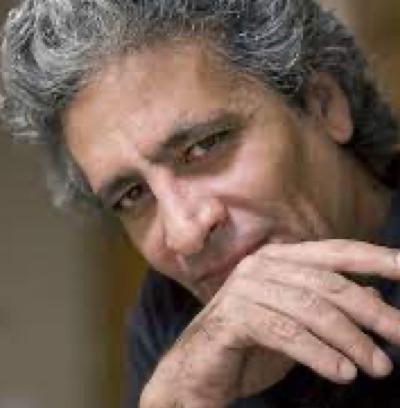
ABOUT THE AUTHORS SHAHRIAR MANDANIPOUR is an award-winning, exiled Iranian author and journalist who served in the Iran-Iraq war. His fiction has been published throughout the world, including two acclaimed novels published in English (Moon Brow and Censoring an Iranian Love Story). In 2006, Mandanipour moved to the United States. He has held fellowships at Brown University, Harvard University, and Boston College, and has taught at Brown University and Tufts University. He lives in California.
SARA KHALILI is the recipient of a PEN/Heim Translation Fund Award for her translation of Seasons of Purgatory. She lives in New York, working as an editor and translator of contemporary Iranian literature and poetry.
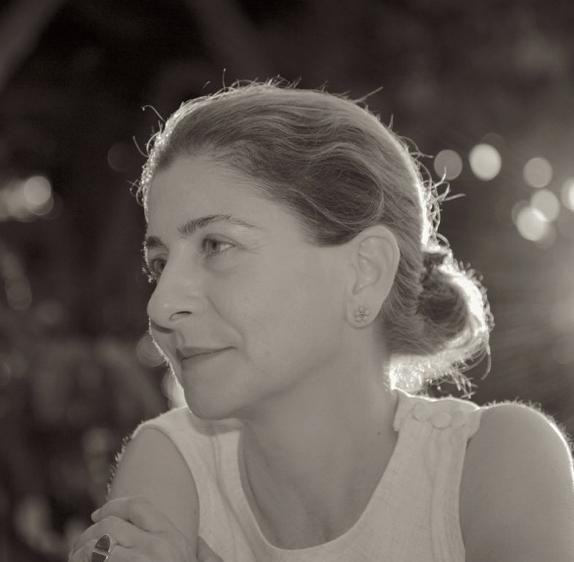

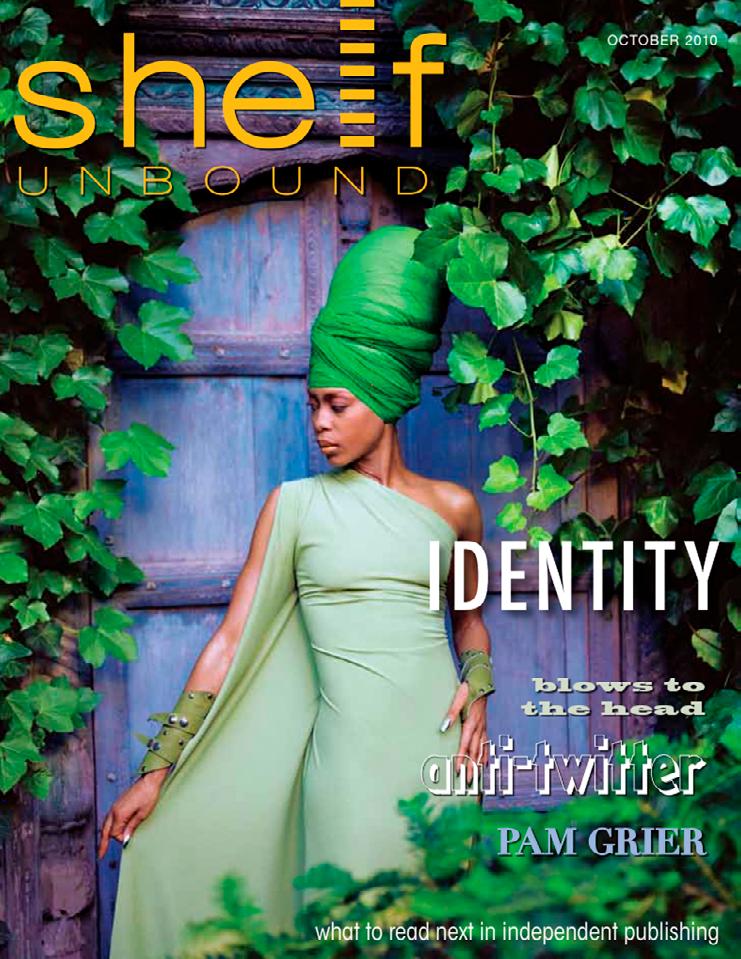
Shelf Media Group's digital young adult community designed to connect readers with YA authors and books.

Released on July 5, Lynn Slaughter’s Deadly Setup is her newest young adult thriller. It’s also a dark, coming-of-age story with a bit of hope.

Seventeen-year-old Samantha, or Sam, isn’t happy when she finds out her mom becomes engaged to a man whose last wife died under mysterious circumstances. When her mom’s fiancé is murdered, Sam is accused of doing it. Now she has to prove her innocence, and she gets help from her boyfriend’s dad, who is an ex-police officer.
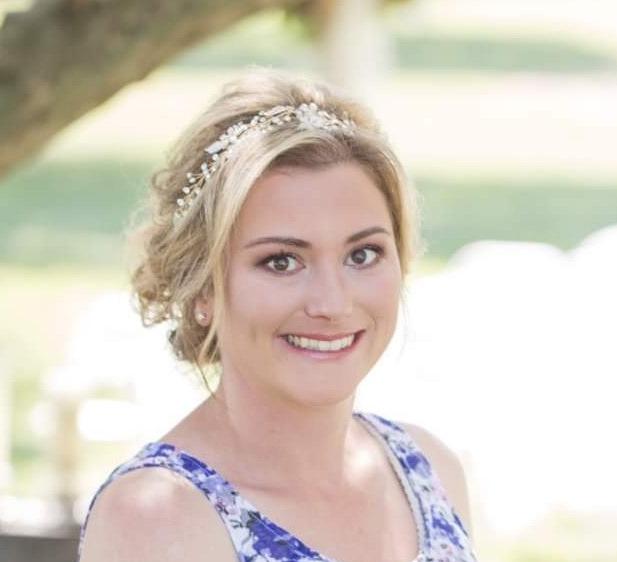
Deadly Setup got my attention right from the beginning and never let up throughout the novel. Lynn does a great job of keeping the suspense going. I don’t think I’ve read a thriller or suspense novel like this in quite a while. The story kept me guessing as to who the murderer was. As I read, questions kept popping up in my head--Was Sam really the one who killed her mom’s fiancé? I didn’t think so, and I thought that from the very beginning. But if not her, then who did? I had a couple of guesses, and I kept turning the pages until the end.
Lynn tells Sam’s story through a first person point of view, at times, I even felt like I was right there either in Sam’s shoes or right next to her seeing what she was doing and hearing her words. Lynn also did a good job conveying Sam’s thoughts and feelings. I almost felt like the story was more real than it is.
Young adult fiction continues to become one of the most popular genres – mostly for adults. Join us each issue to find your next YA read.
The daughter of a New England heiress, seventeen-year-old Sam has tried hard to fulfill her father's dying wish: "Take care of your mother for me." Not an easy job. When her impulsive, romance-writing mom announces her engagement to a man whose last heiress wife died under suspicious circumstances, Sam tries to dissuade her mother. But her mom is convinced she'll finally have the "Happily Ever After" she writes about. And then Sam's life implodes. Her mom's fiancé turns up dead, and a mountain of circumstantial evidence points to Sam as the killer. On trial for murder, she fights to prove her innocence with the help of her boyfriend's dad, an ex-homicide cop.
Just when things are looking especially bleak, Sam uncovers evidence she never expected to find. She faces a tough decision: At what point does the price of loyalty become too high?

Book
awesome Girl+Book YA book review blog.....I smiled to see Blue Karma recommended for "tom-boys, tree climbers, adventure seekers, and backyard-campers" because I have answered (or still do) to all of these descriptions....The Girl+Book blog continues to make my day.”
J.K. ULLRICH, AUTHOR OF BLUE KARMA
Just Read Girl Plus Book’s Review Of Revelation, And It Made My Night!”
Lazarus Panashe is a Zimbabwean writer and editor. He holds a bachelor's degree in Civil Engineering that he has not used for two years. His short fiction has been published online and in print in the anthology Brilliance of Hope.
He writes from betwixt the four walls of his solitary bedroom, which unbeknownst to his family, is a portal to many worlds

Reading global literature is important for growing your mind and your capacity for empathy. In an age of rapid technological advancements, where communication has never been easier, it has somehow also become easier to isolate yourself in your own little echo-chamber. But where’s the good (or fun) in that? Global lit helps broaden our horizons and our understanding of the world, which I think is crucial for societal and relational wellbeing.
Hailing from Zimbabwe, Lazarus Panashe Nyagwambo released his debut story collection, A Hole in the Sky, on January 17, 2022 with Carnelian Heart Publishing. His stories explore human relationships in the Zimbabwean context, which piqued my interest—I’m always interested in reading different takes on the human psyche, especially from global perspectives. Below you can find a synopsis of Nyagwambo’s book, along with our conversation. Enjoy!
“The air was thick with something unspoken, something opaque yet intangible that filled the gaping holes inside all of us.”
Plagued by abysses that portend eternal nights, curtailed by the jagged pieces of life's puzzle and bound on all horizons by the faded colours of yesterday, the people in these stories inhabit a world where their characters cease to be firm, self-defined entities and become fluid, ambiguous consciences as they are thawed by their circumstances.
In this compelling debut short story collection, Lazarus Panashe Nyagwambo offers his interpretation of the human condition, delving deep into the psyche of the personas he invents—their perspectives, motives, and emotions—with a vividness that radiates from the pages.
A Hole in the Air is a blend of intriguing stories that are sometimes as comical as they are sombre. Nyagwambo's prose is as poetic as his reconnoitres of the bonds of love, family and friendship, the strengths of which he tests under the weight of this thing we call life.

LPN: My name is Panashe, although I usually go by Lazarus when I’m writing, so my name is Lazarus Panashe Nyagwambo. I’m 25, and I live in Zimbabwe—that’s where I write and work as an editor. I have published one book, and am also a freelance editor, although I hope I can edit fulltime in the future.
LPN: This is going to sound so basic, because I’ve heard this story from so many other authors. I started in school, writing English papers. My teacher said I was really good, so I started writing more. And I’ve always enjoyed reading, so I guess my writing became better because of that. And then I stopped and went to university in another country, and was dealing with some issues there. To deal with them, I started letting out all my feelings through writing. I showed a few friends my work, and they were like ‘Hey, you’re really good at this, you could actually be a writer.’ I never took it
seriously. But then I started writing more and reading more, and realized that this was something I really enjoyed.
I had studied civil engineering in school, and planned on pursuing a post-grad degree … but then 2020 happened. 2020 was when I really started getting into the writing space. Other countries were on lockdown, and I didn’t want to do grad school in my home country. I was stuck in one place, which I think made my writing better, because when you’re home with nothing to do but think or watch TV, you start getting ideas.
I learned about online literary magazines, and was like ‘Oh, maybe I should try and submit to one of these to see how people receive my work.’ So I sent some stories, and of course I got rejected. But because I wasn’t really serious about it, it didn’t discourage me much. I continued sending my stories out to more and more magazines, and actually got accepted four times within the span of a month. So that was really encouraging. Then Samantha, my publisher, found me online and asked me to contribute to an anthology she was compiling of diasporic Zimbabwean authors. I sent some stories and she liked them, wanted to know if I had more, and said that she’d be happy to publish them as a collection if I wanted.
And here we are! Now I have an entire book. In this way, my first collection wasn’t really planned, it was something that just happened to me. I continue to submit to magazines, and hope to work my way up to something like The New York Times. I want people know my name, and I want them to enjoy what I write. So I’m going to keep trying to improve and get my name out there.
LPN: Well, when I learned I was getting a story collection, I really only had four stories that I thought were good, but they’d already been published by other magazines—so I had to start from scratch. I had other works in progress, but I’d forgotten about them, so I had to go back to what I had and see what I could use. There were some good stories, but a lot of them weren’t good enough to be published. So I spent the next six months writing the remaining stories for the book. After that, we went through the whole process of editing and coming up with the cover design. I didn’t realize it was that stressful—I didn’t know what I wanted, but no one could make anything good enough. I’m a bit of a perfectionist. Everything I saw was ‘bad’, but I didn’t know what I
wanted, so I ended up doing it myself. The editing process itself was really annoying because I didn’t want to reread anything I’d written—it felt embarrassing, like watching an old recording of myself.
I figured that if there were mistakes then it’d be my own fault, so I just checked the suggested changes and gave it the ‘okay’. After the book got published, marketing began, which has been really difficult as an indie author. No one knows who my publisher is, so there are no big ads. We’ve just had to be very upfront and aggressive with it … which I’m not good at. I think most writers are introverts, so forcing people to read something or buy something feels weird. That’s the hardest part of working with an indie publisher. It’s nice, though, because they’re able to give you their focus because they don’t have to deal with a lot of people, so there are pros and cons.
Marketing is a major challenge in Zimbabwe specifically, since there isn’t really a reading culture here. The people don’t really want to buy books. I don’t know if you’ve ever read or seen anything about Zimbabwe on the news, but our economy is terrible, so people think ‘Why would I spend money on a $10-$15 book when I need to buy food for my family or I need to send my kids to school?’ It’s the hierarchy of needs, and books are at
the bottom. So, I’m writing stories about Zimbabweans for Zimbabweans who don’t like reading. That’s very complicated and difficult to navigate. We have libraries, but it’s more for students who have class reading assignments. You’ll never find anyone who’s like ‘Oh, let’s just go to the library and see what’s new in the African literature section.’ That’s so rare. Poetry is really the only thing people seem keen on. However, there’s a niche of people who are interested in African literature who aren’t in Africa, especially the African diaspora, so I have a feeling that that’s where my sales may come from.
LPN: I’ve learned that stories are really hard to sell in general. People want novels, and I don’t understand why. It’s like the difference between watching a TV show and a movie. It’s easier to watch the show because it’s 30 minutes per episode— making short stories much easier and quicker to read—but a lot of people prefer the full-length thing instead. Hopefully I’ll write a novel one day. However, gaining experience via short story writing is vital. I was watching a MasterClass from Joyce Carole Oates, and she was talking about how, if you want to become a writer, it’s
a lot easier to start with short stories and work yourself up to long-form writing than it is to just sit down and try and write a novel. As an editor, I’ve had to deal with people who tried to start their writing career with a full-length novel, and it’s never—and I mean never—good.
RIGHT. IF YOU START BY TRYING TO WRITE NOVELS, YOU PUT MORE EFFORT INTO YOUR FAILING THAN YOU DO IF YOU WRITE SHORT STORIES.
LPN: Exactly. You can take an entire year writing a novel that isn’t good enough, but a short story can take 2-3 days, depending on your process, and you can easily write a lot of those in a few months and send them all out—statistically, people will like some and not others. You can always add some, remove some, etc., so it’s much easier to do that.
LPN: When I started writing, as I told you, it was when I was dealing with some difficult stuff at uni. I was pretty much journaling but changing the names of the people involved and turning them into fictional characters. Eventually, my writing naturally evolved into a commentary on
how I see the world, or how I think other people see the world. Basically, it’s a commentary on life and the complexity of it. Whenever I write a story, I try to never have black and white, good and evil, Superman and Lex Luther … people aren’t perfect, I’m not perfect. Sometimes people have good intentions but go about it the wrong way, and I try to flesh that out in my work. This world is messed up, but it’s not because we are messed up. We’re trying to deal with everything, but we react to things differently. So, that’s basically what I try to pull from when writing— people are nuanced, and life is nuanced. In terms of inspiration, observation and listening are such important life skills, and I’m literally always on the lookout for interesting stories wherever I am.
Like if I’m in public, I listen for people talking—people here are so loud, they don’t even care where they are, they’ll just talk about their marriage problems on public transport. I always take note of whatever interesting conversations I may overhear, and I write about it later (while withholding whatever sensitive information I may have learned). And of course I dramatize it to make it more interesting, but the heart of it is that I get my stories from the world around me, from real people and real experiences. The world is the richest source you can pull from when writing.
LPN: For this collection, it’s definitely literary. If you’ve never been to Zimbabwe, the book will give you a good idea of how we live and how our families behave. Of course it’s dramatized, and I don’t think there’s a single happy ending in that book—my apologies in advance. Our lives are not that sad, I just prefer to show that side of life. However, I’ve been realizing that I find creative, slightly bizarre stories more interesting. Everybody lives through everyday life all the time, so I’ve been trying to get into some really subtle elements of magical realism in my work.
I like it when you’re unsure whether it’s actually magic or not. That’s the sort of fiction I’d like to write. And I’m always working on getting better—my editing role helps with that, inadvertently, in terms of reading a lot of stories from different people with different styles. And I think my writing has become what it is because I’ve read some really good authors in my youth, like Chimamanda Ngozi Adichie, Stephen King, Hardy Boys, Goosebumps, and The Chronicles of Narnia. The more I read and the more I edit, the more skills I can add to my tool-belt.
 BY MELISSA SCHOLES YOUNG
BY MELISSA SCHOLES YOUNG
The Fehler sisters wanted to be more than bug girls but growing up in a fourth- generation family pest control business in rural Missouri, their path was fixed. The family talked about Fehler Family Exterminating at every meal, even when their mom said to separate the business from the family, an impossible task. They tried to escape work with trips to their trailer camp on the Mississippi River, but the sisters did more fighting than fishing. If only there was a son to lead rural Missouri insect control and guide the way through a crumbling patriarchy.
Available at Amazon and Barnes & Noble.
 BY SHELBY COCHRAN
BY SHELBY COCHRAN
Jemma, engulfed in selfloathing from a failed romance and boredom from caring for an autistic brother, plunges herself into a dangerous relationship with a head, a proselytizer of LSD. He soon controls her through the drug and her own false perceptions. She emerges into a life of drugs, sex, and violence. The escapades she experiences, both literally and symbolically, roller coast Jemma into self-awareness. She finds that Om (blessedness) is neither out nor in but who and what she is. Tripping Past Om sensually and lyrically pays tribute to the quest for spiritual and personal value in the postmodern world.
Available at Amazon.
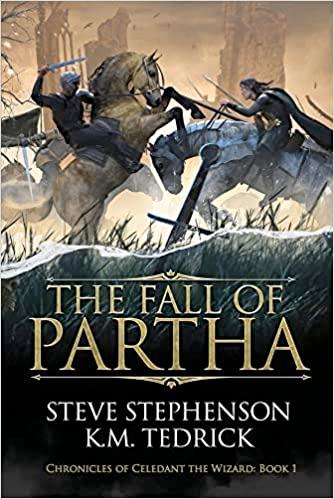 BY STEVE STEPHENSON
BY STEVE STEPHENSON
War breaks out between the kingdoms of Partha and Zeiglon.
The Young wizard, Celedant and his bonded dragon, Azimuth set out to unite the dwarvan clans against the growing threat as the first small step in a grander plan.
The Staff of Adaman, an instrument of good, is miraculously brought into play, but with devastating results. A titan clash with the evil Staff of Adois brings about a conflagration that soon threatens to destroy all.
Available at Amazon and Barnes & Noble.
Golf as you've never experienced it before....
If you enjoy entertaining, funloving, and humorous stories, then come laugh along with Frankie, the witty caddie, whose uproarious, comical words and outrageous, zany antics provide a foursome of golfers some unique experiences during their horrible golf play.
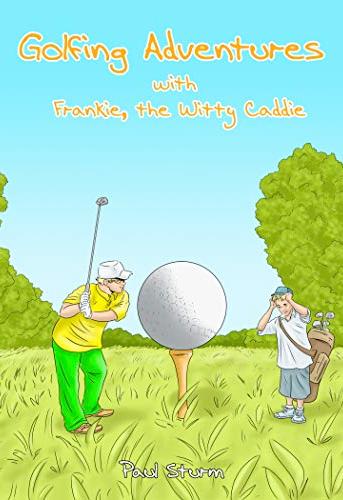
Frankie, just 14 and a scrawny wisp of a kid, certainly had the strength to carry heavy golf clubs. However, would his talkative, amusing thoughts and deeds annoy the golfers?
Available at Amazon and Barnes & Noble.
 BY ANGUS KENNEDY
BY ANGUS KENNEDY
Australian wine writer, Andrew Johnston, goes to Dubrovnik to prepare an article for his editor on the wines and wineries of southern Rhône. He meets up with an old Bordelaise wine making acquaintance, Lucien Delasalles, and his step-sister, Niki Menčetić. He becomes embroiled in the murky affairs of Niki and her family and the local police, which leads to his sad departure from the ancient city.
Available at Amazon, Amazon UK, and Barnes & Noble.
The book gives a composite picture of what heaven is like based on the eyewitness testimony of nineteen separate accounts. As a result it gives a more complete picture than any other single book does. All of Scripture’s testimony about heaven is confirmed and many more details God never revealed in His Word. Many readers say it’s a great blessing and have bought extra copies to give away.
www.anguskennedybooks.com
Available at Amazon, Amazon UK, and Barnes & Noble.
Australian wine writer, Andrew Johnston, is again staying in Europe, this time with his brother, Adrian, for both work and a holiday. During an extensive new wine project from his publisher, he meets up again with a number of his old acquaintances from both France and Dubrovnik, including Niki Menčetić. Whether he can resolve his difficulties with Niki’s life is uncertain.
Available at Amazon, Amazon UK, and Barnes & Noble.
 BY ANGUS KENNEDY
BY ANGUS KENNEDY
In this final novel of the Out of Solitude tetralogy, Australian wine writer, Andrew Johnston, is comatose in a hospital in Sydney, Australia after the events of Međjugorje in Bosnia and Herzegovina. His Croatian lover, Niki Menčetić, believes him gone, the victim of a cruel deception by Andrew’s brother, Adrian, and has returned to Dubrovnik. Andrew now has to try to re-establish the rest of his life.

www.anguskennedybooks.com
Available at Amazon, Amazon UK, and Barnes & Noble.

Omitted Pieces is a quirky, YA SCI-FI mixed with a dash of thriller and a pinch of romance about a girl on a rescue mission.
 BY WENDY SANFORD
BY WENDY SANFORD
It is 2164 and the mad scientist Cromwell has kidnapped Sierra’s mother and set up shop on planet Scepter. In order to save her, Sierra will need the help of friends in this place of glowing leaves and a floating capital. On Vortex, Al has shut down the old facility, but will he be able to join Sierra? What about those who made it to Earth? Are they closer to danger than they realize?
Available at Amazon and Barnes & Noble.
 BY CHRISTIAN A. BROWN
BY CHRISTIAN A. BROWN
Morigan lives a quiet life as the handmaiden to a fatherly old sorcerer named Thackery. But when she crosses paths with Caenith, a not wholly mortal man, her world changes forever. Their meeting sparks long buried magical powers deep within Morigan. As she attempts to understand her newfound abilities, unbidden visions begin to plague her—visions that show a devastating madness descending on one of the Immortal Kings who rules the land.
Available at Amazon and Barnes & Noble.
Two girls meet in a 1950’s kitchen. Mary, who is Black and 15, works as a summer-time domestic worker for Wendy’s white family. Wendy, at 12, is the family’s privileged daughter. Over sixty-five years, the two co-create a deep friendship. Vivid stories in Wendy's award-winning memoir lift up the obstacles, in society and in herself, to this unlikely friendship. These two complex and accomplished women will stay with you. Their story will spark conversation and change.
Available at Independent Bookstores and Amazon.

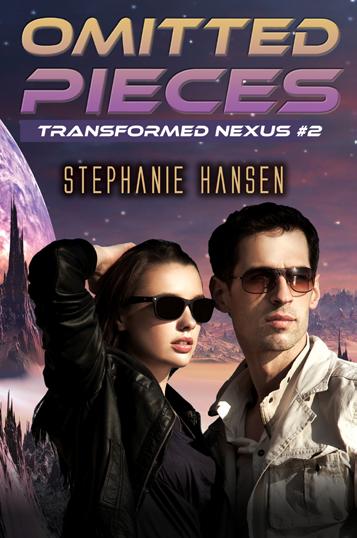 BY J. ARTHUR MOORE
BY J. ARTHUR MOORE
Duane Kinkade was ten years old in the summer of 1861 when raiders struck his farm after his pa had gone to the war; eleven the following spring when he left in search of his father and became a part of the war himself; thirteen the summer he returned home, a veteran soldier after two and a half years of army life and battlefield experience. An intricate blend of fact and fiction, the thread of experience of the fictitious boy soldier runs through the fabric of a very real war and its historic violence as it actually happened.
Also Available at Amazon and Barnes & Noble.
A chance encounter in a chicago park between inquisitive 4-year old Mary and the eccentric Mildred begins a lifelong unconventional friendship. Despite her mother's wishes not to engage with Mildred, Mary finds herself drawn to the kind Bird Lady.
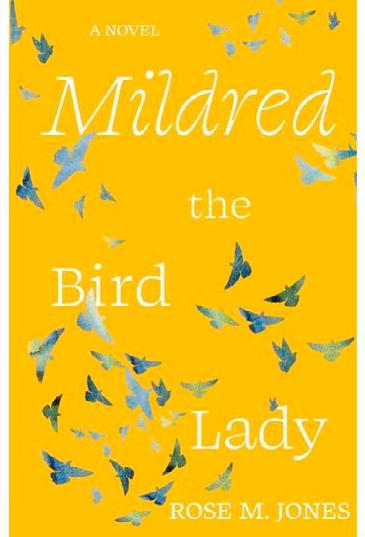
Impressed by Mary's independence and creativity, Mildred shares the lessons of her gilded life and becomes a mentor for Mary. In their moments together, Mildred teaches Mary about courtship,manners, ethics, art, culture, and life's little luxuries. Through the twists and turns of Mary's life, Mildred's influence is felt time and time again, like a gentle beacon guiding Mary toward her true passion and purpose.
Available at Amazon and Barnes & Noble.
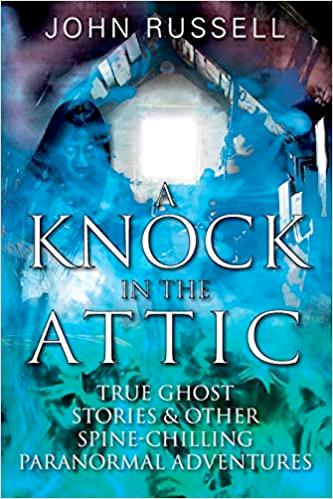 BY JOHN RUSSELL
BY JOHN RUSSELL
When I was five years old I was awakened by an intrusive ghost who not only scared the wits out of me but who also opened up a portal that activated my psychic gifts and allowed a neverending parade of paranormal manifestations to occur in my life.
A Knock in the Attic is my story, not only about my psychic awakening and the abundance of mind-blowing otherworldly confrontations I've experienced, but also about the life lessons those many supernatural encounters have taught me.
Available at Amazon and Barnes & Noble.
The fictional city of Bellport, Massachusetts, is in decline with an urban redevelopment project on the horizon expected to transform this dying factory town into a thriving economic center. This planned transformation has a profound effect on the residents who live in Bellport as their own personal transformations take place.
The Talking Drum explores intra-racial, class, and cross-cultural tensions, along with the meaning of community and belonging.

Available at Amazon and Barnes & Noble.
 BY HELENA P. SCHRADER
BY HELENA P. SCHRADER
An identity crisis triggered by facial injuries, single parenting in the armed services, and PTSD are the focus of three heartwrenching tales set in WWII by award-winning novelist Helena P. Schrader. Find out more about these three critically acclaimed novellas, A Stranger in the Mirror, A Rose in November and Lack of Moral Fibre at: https:// crossseaspress.com/grounded-eagles Buy the collection from amazon in paperback or ebook at: https://www.amazon.com/Grounded-EaglesThree-Tales-WWII/dp/0989159795/
Available at Amazon and Barnes & Noble.
With the death of Lucifer, Queen Lucinda assumes control of Hell, ordering her soldiers to prepare for a doomsday war with Heaven. Craving eternal power, she devours the souls of gifted demonic beings, acquiring their abilities to destroy her perceived political enemies.
Meanwhile, the Black Crows meet with the Knights of Darkness in their hidden headquarters, plotting against Lucinda in their efforts to maintain peace and the balance of power. Consumed by hatred over Crighton Daemonium's unrequited love, Lucinda is unaware of the secret conspiracy brewing, or that Lucifer's spirit has returned to Hell inside the body of a soul–trapped demon.
Reclaiming his throne, Lucifer punishes his daughter for her act of treason. However, his obsession with Samara, Crighton's beautiful daughter, leaves him incapable of controlling his stolen body. After forcing her into submission, he names Samara the new Queen of Hell yet continues his authoritarian rule. When an insurgency breaks out on Earth, he becomes distracted long enough for her to be kidnapped by Nexus rebel forces, believing her to be the prophesied savior of their planet.
Is Samara the Phoenix, destined to destroy Lucifer? Or is she his soulmate and the true Queen of Hell?


Kaylin McFarren has received more than 60 national literary awards, in addition to a prestigious RWA Golden Heart Award nomination for FLAHERTY'S CROSSING - a book she and her oldest daughter, New York Times/USA Today best-selling author Kristina McMorris, co-wrote in 2008. Her award-winning time-travel adventure, HIGH FLYING, asks challenging questions that will linger long after the final twists are revealed. Jumping to the supernatural-horror genre, Kaylin's clever GEHENNA series leads readers into the pit of Hell, through the mechanisms of secret societies, and across the Earth’s crust, ever raising the stakes for her leading duo—a wicked demon and guardian angel presented with shocking revelations.

This stunning debut uses the irresistible scenario of a hermit living in near-complete self-sufficiency in the wilderness, and asks the universally relevant question: what is the value of existing within a civilization when it is fraught with evil? Adelaide has lived a long, solitary existence in the Blue Ridge Mountains. On the verge of ending it all, she discovers two feral children raiding her garden and rescues them in a misguided attempt at a new life. Now she must find a way to care for children who are more beast than human. They only communicate with chirps and grunts, and they pine for their feral mother. When dangerous men and a wild woman emerge from the darkness in pursuit, Adelaide faces a grueling choice. She can release the children back to the wild, saving her own life but losing everything she has grown to love, or fight to defend her new family, risking the death she no longer seeks.
Shan Leah is an award-winning fine artist, freelance photographer, and lover/writer of dark literary fiction.
She was inspired to write Thieves, Beasts & Men, her debut novel, because like her protagonist, she has a tendency to romanticize a life of solitude spent deep in the woods. And though not a feral child herself, Shan was born and raised in the Florida Keys, and with more mangroves than streetlights, it was pretty damn close.

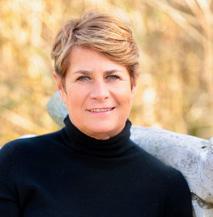
An exploration in grief, suicide, spiritualism, and Inuit culture, Winter of the Wolf follows Bean, an empathic and spiritually evolved fifteen-year-old, who is determined to unravel the mystery of her brother Sam's death. Though all evidence points to a suicide, her heart and intuition compel her to dig deeper. With help from her friend Julie, they retrace Sam's steps, delve into his Inuit beliefs, and reconnect with their spiritual beliefs to uncover clues beyond material understanding.
Both tragic and heartwarming, this twisting novel draws you into Bean's world as she struggles with grief, navigates high school dramas, and learns to open her heart in order to see the true nature of the people around her. Winter of the Wolf is about seeking the truth--no matter how painful--in order to see the full picture.

Martha Hunt Handler grew up dreaming of wolves and has always understood that her role in this lifetime is to tell stories and be a voice for nature. She has been an environmental consultant, a magazine columnist, an actress, and a polar explorer, among other occupations. When she and her four children relocated from Los Angeles to New York more than twenty years ago she began to literally hear the howls of wolves. This marked the beginning of her work advocating on behalf of wolves at the Wolf Conservation Center (nywolf.org). Winter of the Wolf is Martha's debut novel.
When your dreams finally seem to be coming true, it's hard to trust them.
It's been four years since seventeen-year-old Ruth set eyes on her fiance. After surviving near-starvation, revolution and a long trip across the stormy ocean, she can't help but wonder: Will Abraham still love her? Or has America changed him?
Nowhere's as full of change as 1909 New York. From moving pictures to daring clothes to the ultra-modern Triangle Shirtwaist Factory where she gets a job, everything exhilarates Ruth. When the New World even seems to rejuvenate her bond with Abraham, she is filled with hope for their prospects and the future of their war-torn families.
But when she makes friends and joins the labor movement-fighting for rights of the mostly female workers against the powerful factory owners-something happens she never expected. She realizes she might be the one America is changing. And she just might be leaving Abraham behind.
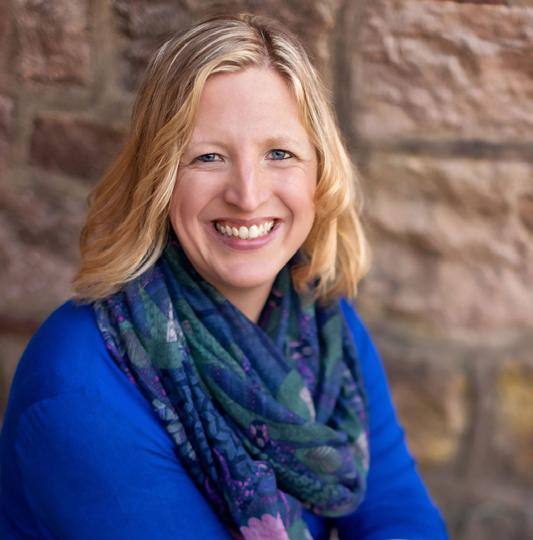
JOYANA PETERS grew up in New York and loves exploring—this led to her discovery of the Triangle Shirtwaist Factory Fire and the stories it holds. She got her MFA in Creative Writing from the University of New Orleans. She currently lives in the DC area and continues to write narratives that shine a light on empowering women and moments in history.
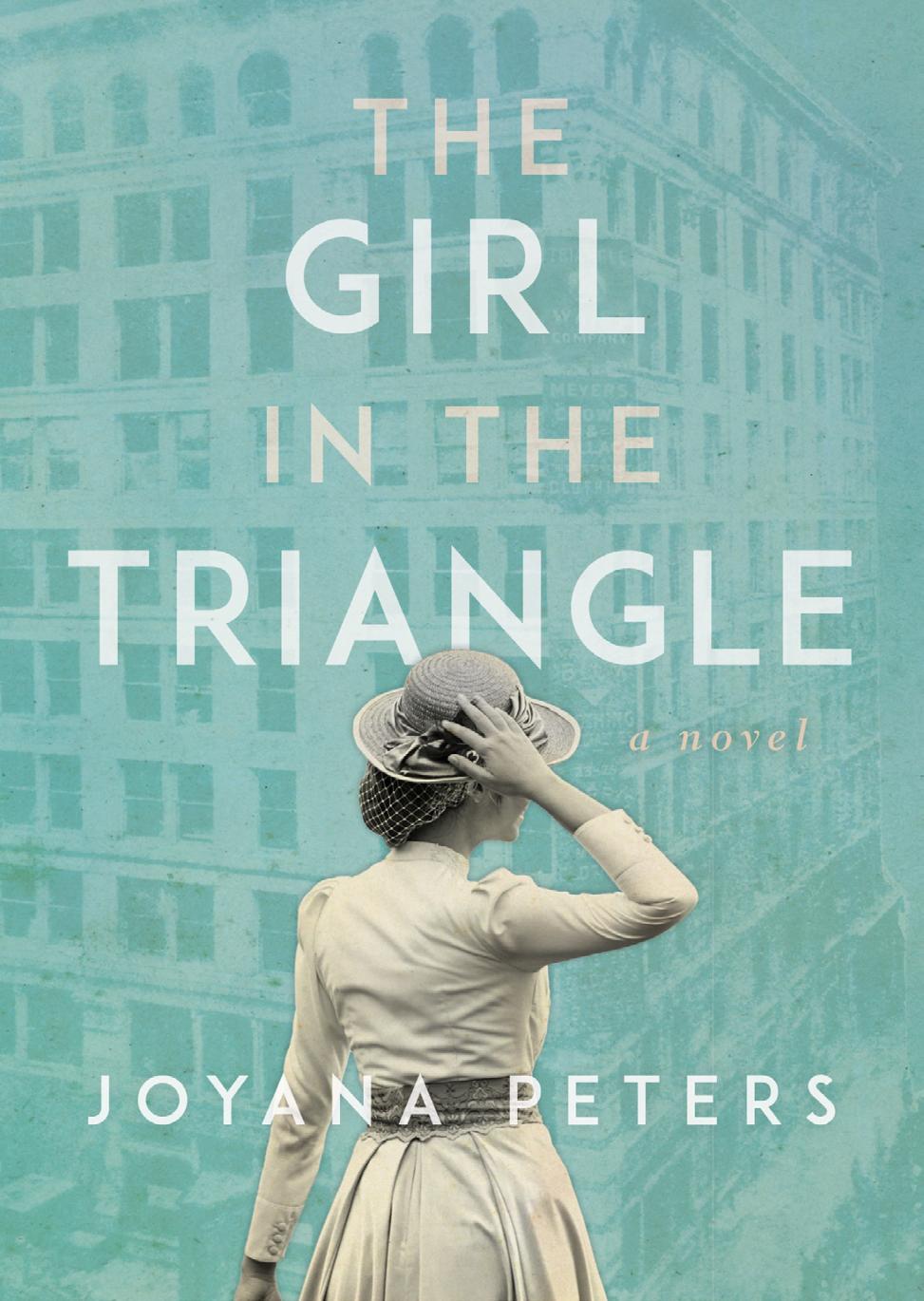
In 1965 April Toulane's life is turned upside down on her fifth birthday when her mother marries a man she's known for only two weeks. The life she'd known is forever changed with the addition of a stepfather and a five-year-old stepbrother who terrorizes her on a daily basis. After a family tragedy the young siblings are thrust into the Hollywood spotlight, surrounded by people whose very foundation is based on secrets and lies. Struggling to grow up and find their way in a world where child stars are forever manipulated and exploited, the siblings form an unbreakable bond vowing to always protect each other when the adults entrusted to take care of them fail at every turn. "Tell Me You Love Me" is the story of April and Auggie Fairbanks, the most sought after faces in show business throughout the sixties and seventies, maneuvering their way through the lies and corruption to learn the truth about their parents and searching for the love and acceptance they so desperately crave.
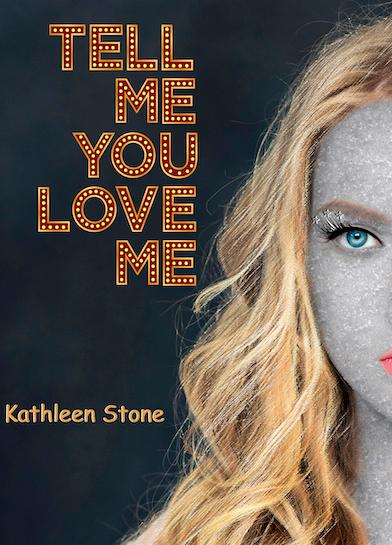
Kathleen has been a freelance writer since 1999 and now writes full time. Her work has appeared in Doll World Magazine, Apolloslyre.com, The Lake County Journals, Trails. com; USA Today (travel), Livestrong.com (lifestyle), Essortment, eHow, Answerbag, Examiner.com, Suite101 and YahooVoices. She is the author of the award-winning novels Tell Me You Love Me and Whispers On A String, and the Head Case Rock Novel Series (Head Case, Whiplash and Haven). She also has short stories published in the Secrets: Fact or Fiction I & II anthologies.


 BY MICHELE MATHEWS
BY MICHELE MATHEWS
In May, Kamal Gupta released Play It Right, a memoir that chronicles his journey from India to America, from computers to gambling, culminating in a quarter-century career on Wall Street. I had the chance to learn more about him and his debut book.
KG: I had grown up in India during the 1970s, which was an especially turbulent time. Consequently, to me, America seemed like a mythical place where anything was possible. I still remember landing at JFK Airport in August of 1985, peering out of the window of a British Airways jumbo jet and being filled with hope and anticipation. Despite that sense of optimism, I found my adjustment to be somewhat difficult. I had migrated from New Delhi, where winter temperatures bottomed out at 40 degrees, to Madison, Wisconsin, where I would experience wind chills of 70 below zero. A late night encounter with a fire alarm made me feel particularly foolish — I had mistaken it for a large bee trapped inside my oven. Food proved to be another challenge. I was a vegetarian (still am) and grocery stores in America’s dairyland weren’t all that hospitable towards an Indian who didn’t eat meat or cheese.
Two things struck me about America when I first arrived. One, anyone could attain a decent standard of living as long as they were willing to work hard — an idea that was miles removed from the prevailing economic climate of India. And two, there was a level of trust between merchants and consumers that I found remarkable. You could put a quarter into a newspaper kiosk and take as many newspapers as you wanted. (I only ever took one.) If you weren’t happy with an item bought from a store, you could simply return it for a full refund, another truly foreign idea.
KG: I realized early on that I had no interest in spending the rest of my life sitting in a cubicle and punching on a keyboard all day long. As a result, I was always on the lookout for a distraction from the tedium of my computer job. I spent a great deal of time playing a Tetris-like video game in the office and shooting pool in smoke-filled bars after work. I took up sailing and bought a sailboat. In my search for an alternate career, I even moonlighted as a waiter in
a Middle Eastern restaurant. A handful of years later, on a weekend ski trip to Lake Tahoe, I encountered the game that would change my life.
I was fascinated by the simplicity of blackjack — get as close to 21 as possible without going over. And when I discovered that counting cards could turn the odds in the player’s favor, I was hooked. The game was the perfect combination of three things I cared deeply about: numbers, taking calculated risks, and fighting against unfairness. I found it extremely unjust that casinos threw skilled blackjack players out, a fate that I would suffer myself on several occasions. I decided to become a professional blackjack player, if for no other reason than to teach the casinos a lesson.
KG: Before I started working on Play It Right, I had never written so much as a one page article. However, I had a great deal of experience as a storyteller, albeit only verbally. It was a challenge to translate that skill into writing that could not only be understood by anybody, but would also appeal to them. I read several books on how to write creative non-fiction. It took me a while, but I
figured out that writing is a craft and that, with practice, anyone can become a competent writer. I also had a great deal of help with the editing of my early drafts, some of which were truly awful.
I write strictly between the hours of 4 and 8 a.m. because of the silence offered by the early morning. Writing can be a frustrating experience. Sometimes I was able to write an entire chapter in one day, and at other times, I found myself deliberating over one sentence for days. The most satisfying aspect of writing is the feeling you get when you nail the story as well as the language. You just know when it is right.
KG: I decided to write Play It Right simply because I had a story to tell — a bored computer scientist transforms himself into a professional blackjack player, parlays his gambling skills into a job on Wall Street, and embarks on a quarter-century odyssey into the world of high finance. What made my story unique was the fact that, in addition to my being an Indian immigrant, I had never pursued any of my vocations for money. In casinos as well as on Wall Street, I was driven solely by the desire to play the game well.
I have always considered money to be merely a side effect of a game played well, a lesson that is sorely needed in today’s world. The myriad of problems that America faces today as well as the 2008 financial crisis can be blamed upon a quarter century of unbridled greed. The notion of “the game” has been lost in a relentless thirst for more and more money. My goal in Play It RIght is to put the focus back where it belongs.
IN YOUR BOOK, YOU SAY, “… WALL STREET OF THE EIGHTIES APPEARED TO BE A DEN OF THIEVES…” COULD YOU EXPLAIN
WHAT YOU MEAN BY THAT?
KG: In the 1987 movie, Wall Street, Michael Douglas’s character famously said, “Greed is good.” Far from being impressed, I was appalled by that line. I have always considered greed to be the root of evil.
Two of the most prominent practitioners of the greed is good principle, Ivan Boesky and Michael Milken, both earned significant jail terms for their offenses. Hence, I became convinced that the financial industry was a den of thieves and even took a vow to never work on Wall Street. Needless to say, I ended up breaking that promise.
KG: In 2018, I was involved in raising money for the largest hedge fund launch in history. When ExodusPoint Capital opened its doors in June of that year with a whopping eight billion dollars under management, I knew that I had the perfect ending to my Wall Street story. I began working on Play It Right shortly thereafter and left the financial industry for good the following year. Right now, I am working on another non-fiction book. I have also signed a film/TV deal for a screen adaptation of Play It Right. If all goes according to plan, there might be a movie or a television series based on the book somewhere down the line.
YOU STATED, “ALL OF LIFE IS A GAMBLE,” IN AN ARTICLE. EXPLAIN
WHAT YOU MEAN BY THAT.
KG: Life is a game of probabilities, which, by definition, turns it into a gamble. Moreover, every aspect of life carries with it some form of risk along with potential reward, just like gambling. Every decision in life, from the smallest to the most consequential, requires an assessment of that risk/reward equation. Whether you are picking out a melon in a supermarket or picking out a spouse, you are gambling with your future.
Instead of relying upon or blaming luck, I have consistently tried to turn the odds in my favor through careful analysis and hard work. This principle has stood me in good stead throughout my life.
YOU’RE WORKING ON A SECOND BOOK ABOUT BEING A NEGOTIATOR. WHEN WILL YOU BE RELEASING THIS BOOK? COULD YOU SHARE SOME DETAILS ABOUT IT, INCLUDING A BRIEF DESCRIPTION OF WHAT A NEGOTIATOR DOES?
KG: The book is in its early stages, and I have no idea when (or if) it might be released. I consider myself very fortunate to have published a memoir despite being a complete unknown without any writing experience. A second book would be icing on the cake. The book is about my adventures as a behind-the-scenes negotiator. I strongly believe that the playing field today is tilted in favor of big business and against individuals. I have tried to combat this unfairness by helping scores of individuals negotiate against their corporate nemeses. Negotiating is a game of imperfect information. You know the cards you hold and the terms that you are willing to accept. But you have no idea about your opponent’s hand or the terms that
they might be willing to accept. Much like a professional poker player, a savvy negotiator determines the other side’s cards from their moves and from their words. At the same time, his own moves are designed so as to not betray the strength (or weakness) of his hand. This allows him to maximize his advantage and extract the best possible terms. There are many who find bargaining distasteful and consider it beneath their dignity. In my opinion, these people either have too much money or too little appreciation for the game. I consider negotiating to not only be a great game but also a just cause. Nothing gives me greater satisfaction than outwitting a powerful corporation and securing a great deal for someone.
Kamal Gupta is the author of Play It Right, a memoir that chronicles his journey from India to America, from computers to gambling, culminating in a quarter-century career on Wall Street.

A real-life underdog tale of one man turning the tables on the casinos and Wall Street without selling his soul to the devil
All around the world, the words “Wall Street” conjure up a powerful image. For some, it is the center of America’s capitalist system and the engine of its economic growth. For others, it is the home of rapacious bankers and reckless traders whose greed would lead to a global financial crisis. For an Indian-born blackjack player, Wall Street represented something else entirely – a chance for him to play in the largest casino in the world.
Kamal Gupta’s improbable journey, from a wide-eyed Indian immigrant to an ultimate insider in the rarefied world of investment banks and hedge funds, is a uniquely American story. Nowhere else would it have been possible for a scrawny computer scientist to enter the world of high finance solely on the basis of his gambling abilities. After spending seven years creating an investment methodology, Gupta went on an incredible run, generating an unprecedented 103 consecutive months of positive returns while managing money at large hedge funds. His success did not go unnoticed, and he found himself under constant pressure to take bigger risks to make even more money. He refused and always played it right, knowing that there was such a thing as “enough” money, something very few, if any, of his Wall Street peers understood.
Much like Maria Konnikova’s bestseller, The Biggest Bluff, Play It Right isn’t so much about money as it is about the human condition and beating the odds, whether at a casino, on Wall Street, or in life itself.
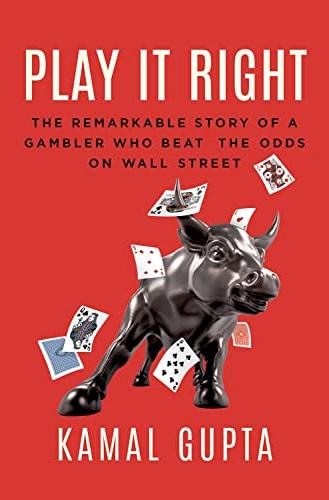

Ocean’s Grave represents Malone’s second novel in his series of Lovecraftian Horror, a continuation of themes and characters from his first release, Spring City Terror 1903. While not a direct a sequel, Grave rewards readers of the previous entry with efficient worldbuilding and allusions. At the same time, one gets the impression that each book of the series can still be comprehended and enjoyed as standalone reads.
TEN16 Press, a division of Orange Hat Publishing, housing fiction, non-fiction, YA and poetry books.

The plot involves an antiquities merchant, Mitchell Bernheim, practicing his trade in the dusty aftermath of the Great San Francisco Earthquake of 1906. The setting reflects the persistent aura of misery and hardship while also the restless spirit of the great city’s citizenry. There’s a robust yet manageable set of characters: hostile businessmen, gangsters, love interests, academics, and cult members — the full casting call of Lovecraftian fare. While in the end, they amount to an assortment of allies and enemies, their introduction is rooted in a sense of realism that does not establish a plot progression too transparent or predictable.
Through a misfortunate turn, Mitchell takes possession of a cursed artifact — a Chinese tomb guardian, supposedly of the medieval Tang Dynasty (618-907 CE). This comes to dictate the action more than just its immediate effects on the protagonist; two-thirds through the book, the setting pivots to China. By this point, it has become apparent that Malone has taken every advantage of the globe-trotting nature that has increasingly come to define Lovecraftian tales of larger scale. One can deduce that he is incorporating various
elements of his academic background in history with the playful alignment of destiny. The end result, far from being distracting or unbelievable, renders a distinct signature to the work.
The book explores the various complications that the tomb guardian poses, both in who also claims ownership over it, as well as the innate curse and foul dreams that it radiates to its owner. Without giving too much away, the tomb guardian is not without beneficial effects either — allowing Mitchell to continue with his deeper investigation into the artifact where others may have succumbed to death or madness.
This review agrees with the assessment of Dr. Ian DeJong, who describes Ocean's Grave as "terrifying and
In the Paris of the West, antique specialist Mitchell Bernheim is haunted by life after death - his own.
strangely gripping - hard to put down, as its colorful cast of rounded characters encounters organized crime, reincarnation, and unnameable forces wrestling for universal control.”
In summary, Ocean’s Grave is a nuanced and welcome addition to Malone’s growing canon, and the expansive library of Lovecraftian fiction. Perhaps Malone’s greatest success is the construction of plot structures that do not overwhelm new readers of the Cthulhu Mythos, while also bearing all of the more subtle elements genre veterans come to appreciate. In every respect, the story ripples begun in Spring City Terror have amplified their reach to a wider setting and deeper level of immersion in the mystery and horror of Lovecraft.
As San Francisco recovers from the great earthquake, Mitchell obtains a bizarre Chinese tomb guardian at auction. He quickly discovers that the artifact's suspicious origins make it highly prized by criminals and occultists, its price much greater than he had originally bargained for.
Coming into contact with impossible sorcery, entangled myths of a bloodstained dynasty, formidable foes and allies,


 BY SARAH KLOTH
BY SARAH KLOTH
For nearly two decades, Şiva has met after work on Tuesdays with four friends at a teahouse called the Kafiye. In interrupted conversations, the women explore what it is to live engaged lives inside and outside the home. Amidst joking and complaints, while drinking too much tea and eating too many sweets, they tell of their days: a son’s ninth birthday, the bruise on the arm of an aging parent, soldiers stationed outside the school, the funeral of an opposition political leader killed in a mysterious car accident.
Set in an unnamed provincial capital of an unnamed country, Benefit Street tells of a wide circle of friends—teachers, lawyers, missionaries, doctors, artisans—in a time of gathering and dispersal. It tells the story of mothers, daughters, sisters, wives, colleagues, and neighbors, as war to the East threatens and constitutional rights are daily eroded by an increasingly authoritarian regime.
The ideals of youth, freedom, and coexistence are severely tested with the shocking revelation that the charismatic leader of their group has sexually abused the women under his care. The limits of reconciliation are tested as Şiva makes an arduous journey into the mountains to meet an estranged mother with a genius for weaving complex rugs.
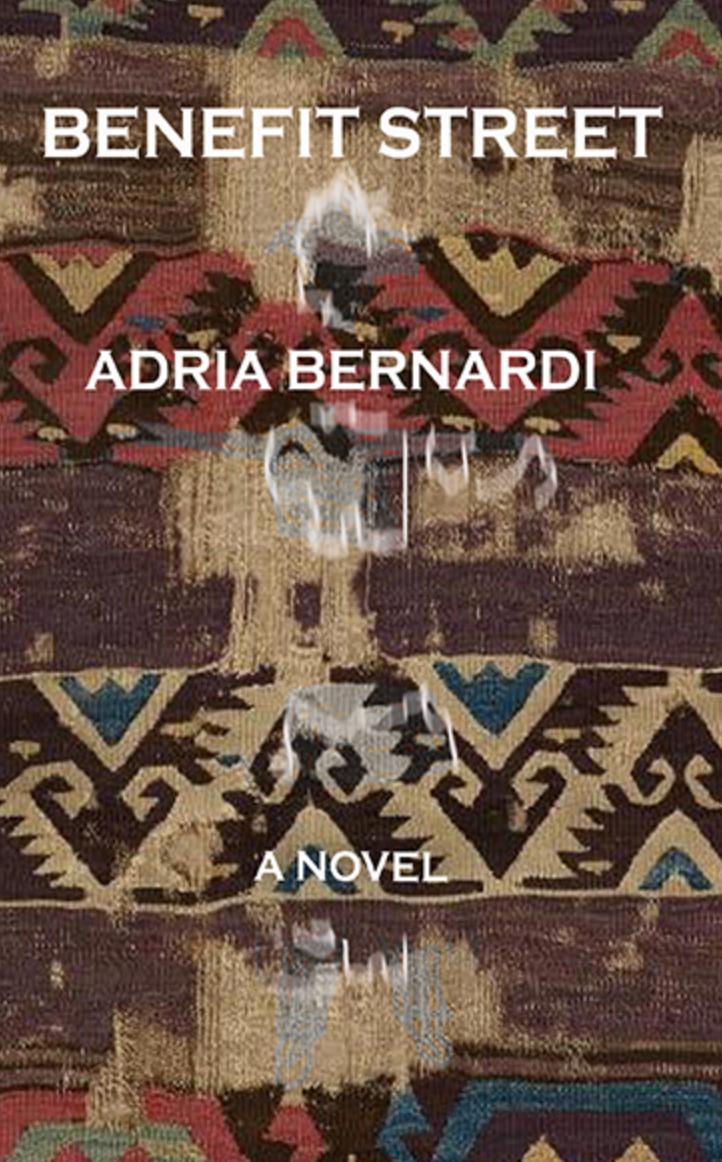
AB: Benefit Street, my sixth book, is set in an unnamed country in a troubled region. It follows a group of women whose lives have been disrupted— subtly or poignantly—by intertwined events, both far-reaching and personal: Civil war, political strife, displacement. Infidelity, children growing up, parents growing older. The shocking revelation of sexual abuse by a friend. Against the backdrop of the gentle knocking and thrumming emanating from a loom as the main character Şiva’s mother weaves masterful, complex rugs, the narrative loops and weaves expertly between scenes of the friends gathering at the café Kafiye for tea and sweets, and through the overlapping shadows of war and change, friendship and separation, loyalty and betrayal, exile and home— leading readers to contemplate what it means to lose a language, a culture, a community and hard-won freedoms.
It’s the winner of the 2021 Fiction Collective Two (FC2) Catherine Doctorow Innovative Fiction Prize, and published by the University of Alabama Press.
AB: Bringing over a work into translation requires that I put myself aside, both as a writer and as an individual, to the greatest degree possible, in order to understand the original work on its own terms. That process requires a kind of ongoing questioning; for example, there’s a word which I think is intended to reinforce a tone and meanings of irony. Am I correct? Have I understood correctly? And if so, how do I then find a word or a phrase that imitates it in English?
The practice of translating has deepened and widened the ways I think about lexicon, the choice of words, for a particular work. There is always more than one way a phrase can be translated and there are often multiple choices for a particular word which would all be correct in terms of denotation. For example, small, little, tiny, diminutive, minute, puny. But would some of these choices not resonate with the original work overall? Which of
them are in keeping with the meaning of a passage? When I think about the works I’ve translated, there is a wide range.
Three of the translations, those of the work of Tonino Guerra and Raffaello Baldini, involve works written in a particular dialect of Italy and which echo conversation, the spoken word, and the voices of speakers tied to the land and small communities of the countryside left behind by “progress”. By and large, these are storytellers who have not studied for very long in an educational system and who have a visceral attachment to the places, people, and objects of their worlds. Then, there’s The Rings of the Universe by Ubaldo de Robertis, who was a nuclear chemist. I consider all of these works as philosophical poetry, but the explorations are very different.
In translating, there will always be word choices expressing the same originallanguage word that belong to one body of work but not to another. Thinking about words and phrases in this way while in the process of translating changes the writer; it gives her more ways to understand and to consider, among other things, perspective and
tone. When I return to a work original to me, a poem, for example, or an essay, I carry with me the same kind of ongoing questioning that occurs during the process of translation, a process that involves continually questioning, asking myself over and over, for example, does this word even belong here?
YOUR AWARDS INCLUDE THE BAKELESS PRIZE FOR FICTION, THE DRUE HEINZ LITERATURE PRIZE, AND THE RAIZISS DEPALCHI TRANSLATION AWARD. WHAT HAS THIS RECOGNITION MEANT TO YOU, AND IN WHAT WAYS HAS IT HELPED YOU AS A WRITER?
AB: Writing is a solitary life; it’s a way of living that requires solitude. Anyone dedicated to their craft understands that the moments of validation are few and accepts that the work must be done mostly without outside approval or encouragement because writing is, by its very nature, an internal journey. In those moments when great writers, who are also teachers of their craft, singled out my work for praise, it signaled to me that it has reached its reader, that the work is important, and that it matters in this world. What I also understood is these rare moments, a gift in a
writer’s life, sustain her—especially in those inevitable stretches when she gets disheartened. It’s a kind of touch-home, like those places deep inside us that we seek out to sustain us in difficult times. I think of these moments of recognition as a little zone of generativity I call upon from time to time when I’m particularly in need of reminding myself, you know what you’re doing. Ignore the distractions. Trust your voice.
AB: One of the most validating moments around the publication of a book is when a reader tells me the work has been important to them and speaks about why they’ve connected with it. It’s an honor whenever someone who has read my work starts talking about how it reminds them of another book important to them and then starts discussing their relationship with books and literature. It’s a deeply gratifying pleasure to learn that a reader has associated the work with another beloved work. Intellectually and creatively, it’s amazing to hear someone discuss how it is that the work reminds them of another work. At that point of the discussion, I’m listening to them discuss
their own processes and experiences as a reader which always yields surprising and unexpected insights.
AB: If what the question is asking is how it is that worlds get imagined, or a voice emerges, or a phrase starts to assert itself, I’m not sure I can answer that. I think of that moment of invention as a kind of coming together in a moment—maybe what I’ve been reading or recall reading, maybe a song that I once knew really well that I re-hear, someone’s offhand comments, a car horn beeping. Books, the world around me, the experiences of people I know intimately and of people I’ll never meet but whose lives have demanded that I pay attention. What’s harder to convey is that it happens through and as part of the writing processes.
I’ve always drawn inspiration from my grandparents and my great aunt, all immigrants, who all had terribly difficult lives of great privation as children and as young people pretty much up through their thirties until, if I can repeat their ironic joke, things really started looking up for them during the Depression. I’m drawing inspiration
now from my mother and father, who are both in their 90s, and who are so steady and strong and devoted to the world, and who also somehow, even with the pandemic, maintain a much wider social network than I do. I’m inspired by my mother-in-law who just turned 95 and seems terribly annoyed to have been slowed down at all. My mother, my father, and my mother-in-law have been kind of inspiration in showing how to live in a pandemic that no one seemed to be expecting. I draw inspiration from my husband, who is an outpatient psychiatrist who manages through all the chaos of this world to stay focused and dedicated to his vocation. I draw inspiration from my two grown sons. It’s not a particularly great moment to be a young person, and I get inspiration from their wisdom, kindness, and by the fact that they both seem to see right through all the nonsense.
I draw inspiration from Rebecca J. West, an esteemed scholar of contemporary Italian literature at the University of Chicago. She was my professor when I returned to school in 1989 after having been away for ten years from the academic world to earn a master’s degree in Italian language and literature. Through her intelligence, her creative intellect, her generosity, humor
and generativeness, another world opened up to me.
AB: When I truly committed to the craft of writing, which was immediately after I graduated from college in the early 1980s, there were three writers
I studied closely. Reading each of them was life changing. With each, I learned something about language and storytelling that I had not understood before. I had studied literature and history seriously before this. But this was the first time there was not a teacher defining literature and intellectual investigations. And, like so many readers and writers who came of age during this period, I, too, “discovered” Italo Calvino, Gabriel García Márquez, and Toni Morrison. After the discovery of these writers, my relationship to literature, to language, and to self-expression was never the same. Each of the three writers for me represented a creative and intellectual liberation, a model, a way to live one’s life as a witness to the world, to invent new language, and in the invention of new imagined worlds to adhere to a high standard of the intellect. I learned that I was solitary and that I needed to work in solitude. It was the reading of these authors, what was so liberating for
a young woman inventing herself as a writer, was the experiencing, this work belongs to you—the reader. There is no intermediary. They each gave me the liberating message and the challenge that there’s no one else who can write what I alone can write.
AB: Well, to watch what goes on is pretty boring. What might show is me stepping outside to check the mailbox. A typical day starts with a cup of tea and sitting still for a few long moments by myself trying to understand what I’m experiencing. Were there any dreams of note? What am I preoccupied with? This morning, I try to listen for any phrases that might be going through my mind and to detect whether or not there are concepts I’m focused on or circling around. At breakfast, I usually read the news. Over the years, I’ve gotten into the habit of going for my walk first thing in the morning because 1) if I don’t I won’t do it, and 2) for much of the year in Nashville it’s too hot to take a walk any later in the day. I sit down to write every day in the morning, including weekends, and I work until noon or one. Which is lunchtime. Over the course of the
afternoon, I may revisit something I’ve written earlier or tend to administrative tasks. Ideally, I’ll finish the afternoon reading something that I’ve committed to reading deeply. Somewhere in there, all the other things of life get tended to, bills for example or the inevitable washing machine repair. Also, I try to remind myself, usually not that effectively, to do my neck and shoulder exercises.
AB: In fourth grade, one of the teaching materials that was used for teaching reading was part of a series in which there were excerpts of stories on laminated sheets inside boxes that were color coded. The students worked their way independently through what was essentially a file case, with each of these boxes representing a different reading level. There was, of course, a kind of hierarchy of readers and a kind of competition that was encouraged. I whizzed through the first and the second of these boxes with the filing systems inside them. A reader read one excerpt or a chapter from a longer work at each reading, did the related testing work afterwards, and could then tick it off the
list and move to the next laminated card in the file. One of the colors, I think, was aqua blue. And another, I think, was maize. When I got to the third box of this filing system, which was called the SRA learning method, I remember that I had pulled out a laminated sheet and I read an excerpt of a particular story that made no sense to me. I had no way into the story. I remember that I experienced it almost as if reading something in a language I didn’t know. My eyes went over and over the text. Nothing was going into my brain. It was like my mind had glazed over. The two key words, possum and persimmons, were completely foreign to me. I couldn’t figure out what they were or what it meant. I felt locked out, and I don’t think I ever “mastered” that particular reading lesson. But I felt the soundconnections between the two words.
AB: I hope one reader will tell another reader, You have to read this. It’s about friendship and displacement.
AB: My work is fairly idiosyncratic and for a writer whose work is idiosyncratic,
and by that I mean, it doesn’t seem to easily fall into one category or another, there’s considerable challenge placing both shorter and longer work with a publisher. That said, I think that success for me is when a work finds that first reader who puts it on the journey towards becoming a book; in the case of Benefit Street, that reader was Joyelle McSweeney, poet, prose writer, playwright, critic and publisher, who was the judge for the 2021 FC2 Catherine Doctorow Innovative Fiction Prize. As a writer, I don’t think there’s any greater indicator than the moment a reader has signaled to you that the work is in some way essential to them. That it has been worth living with for a period of time. After the first reading for the book launch for Benefit Street at Parnassus Books in Nashville, I received a message from a young professional woman, a healthcare provider and an emigrant from a war-battered country, who said that the story brought back sudden lost memories of home and that she valued how passionate and connected I am to my characters’ voices and their stories.
AB: When I’m not writing or having the pleasure of a long quiet read, what I most like to do in this world is going for
walks and hiking. I love to kayak on very quiet bodies of water. I like spending time outside in the garden—although I find I’m not enjoying the tedious parts of gardening such as weeding as much as I used to. I love going to see films and being around other people who are each individually watching the same film. One of the highlights of last pandemicsummer was during that period when it looked like it was going away and getting tickets for all the films the Fellini festival at the Belcourt Theater in Nashville where I live; it was wonderful to watch and listen to the films on consecutive evenings running such that I was carrying around those sounds in my head for two weeks. I like to travel and journey; as it has for so everyone, this ongoing pandemic has changed the ways I’m able to do that. I like listening to music and especially going to a show at the Ryman Auditorium. If I go to a city I don’t know, I like to spend time in an art museum. I think one of the greatest pleasures is to be cooking dinner with the radio on in the background.
AB: Most of my current writing is poetry and creative nonfiction essays. I have a couple of longer investigations
in process, including an extended mixed genre essay about migraine. I hope to soon complete the final work on a work of historical fiction about a physician and man of science in the 18th century. It’s about the centuries-old tensions between mind and spirit involving a character whose life is dedicated to rational thinking amidst a pervasive onslaught of Ignorance.
Adria Bernardi is a writer and translator whose publications include an oral history, a collection of essays, a collection of short stories, and two novels. Her eight translations from Italian include the prose of Gianni Celati and the poetry of Tonino Guerra and Raffaello Baldini. She has been awarded the 1999 Bakeless Prize for Fiction, the 2000 Drue Heinz Literature Prize, and the 2007 Raiziss/DePalchi Translation Award. She has taught fiction-writing at the Warren Wilson MFA Program for Writers. She was awarded the 2021 FC2 Catherine Doctorow Innovative Fiction Prize for her novel, Benefit Street, which will be published by The University of Alabama Press in 2022.



Shelf Media Group's digital magazine about podcasts and podcasters.


A warm, welcoming chat about books.
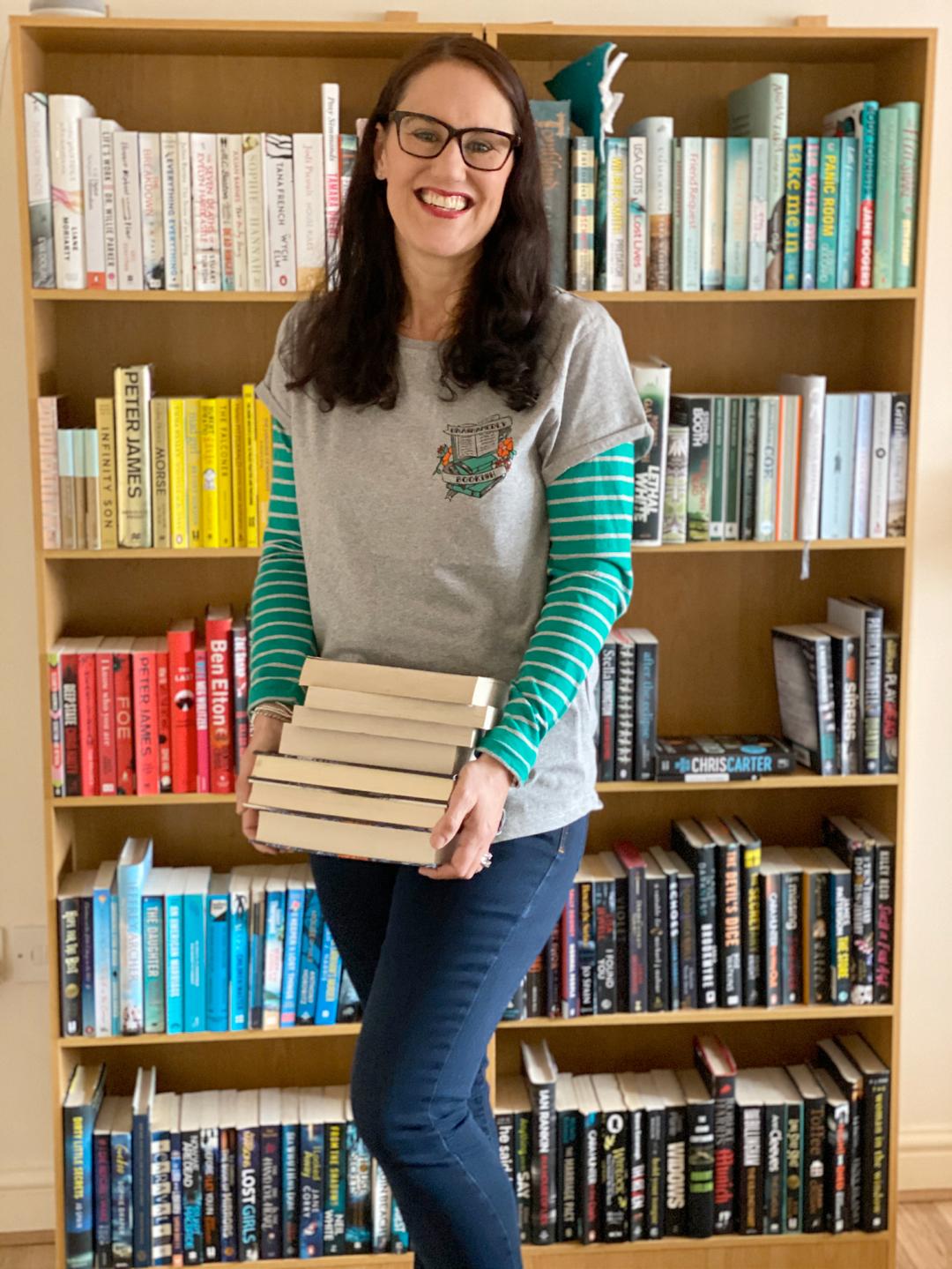
The Quick Book Reviews Podcas is a weekly podcast which includes author interviews, book reviews, opinions and conversation.
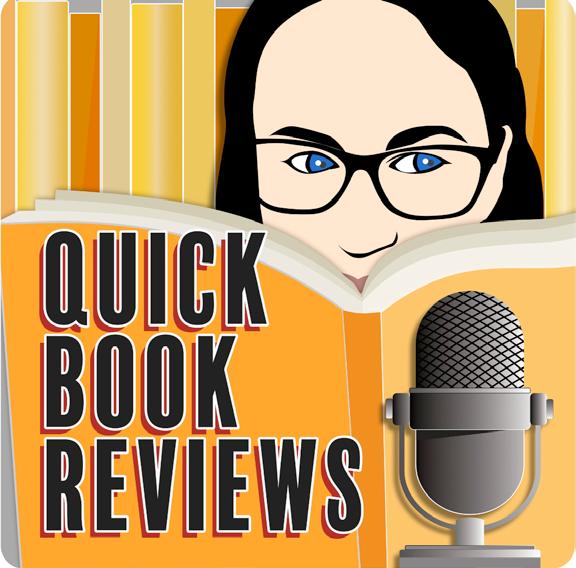

Podster is a column for podcast listeners and serves as a curator for the best of known and unknown podcasts.
 BONNETS AT DAWN BY LAUREEN AND HANNAH
BONNETS AT DAWN BY LAUREEN AND HANNAH
PH: I (Philippa) have loved books for as long as I can remember, from sitting under my duvet with a torch as a child, reading books past my bedtime, to getting my first weekend job in the local library. In a world where we've witnessed such volatility and uncertainty, books are the constant escape and have transported me to different worlds.
PH: It started three years ago, when I had already established a platform on Instagram using post-it notes to give my reviews on books. It was suggested that I take it further, so I literally held a vote between YouTube or Podcasts, with podcasts winning the vote. I also preferred producing a podcast because I don't have to wear make-up and get dressed up. Also, I felt that the book community was already very well developed on YouTube, however that wasn't the case with podcasts. What I wanted to do was replicate the cosy, chatty feel you get on YouTube and
put that out as a podcast.
PH: A warm, welcoming chat about books.
I usually have one longer author interview plus one shorter interview, as well as five books reviews on each episode. Plus there is some chat from me. I just want people to love reading, to be able to escape into a book, to feel better from listening to me, and perhaps a smile or a laugh and a growing list of books to read.
PH: I love reading books and recording the podcast, but the editing and marketing takes time. I get some amazing authors, and I always finish talking to them feeling brighter and better. Authors are my rockstars and the fact that they want to come on and talk to me is incredible.
PH: I started an account on Twitter and that has helped, plus the Instagram and TikTok accounts work too. However, it is mainly word of mouth, as people tell their friends and more and more start listening. The amount of listeners I get now is amazing; it's wonderful! I feel honoured that so many people around the world enjoy listening to me.
PH: I enjoy every episode, however the one where I had Stephen Fry come on and talk about his book has to be the standout. He was such a kind man and an absolute pleasure to talk to.
PH: Every Monday (with a 2 week break in July & December) there is a new episode waiting for you, with a wide range of books and authors to choose from. There are some wonderful author interviews coming up and books to review. I cant wait for everyone to listen in!
PH: The "Quick Book Reviews Podcast" is available on all good podcast sites.
Find us on Social....
TWITTER: @QuickBookRevie2
INSTAGRAM: @quick_book_reviews
TIKTOK: @quickbookreviews
If you think you do not need to improve your skills, then you are already lost.
Everyone needs to hone and develop their writing skills, if they want to be a fantastic writer that is.
So, with that in mind, how can you do it?
CAAB Publishing Ltd is a traditional, small, indie company helping unknown authors have a voice and inspiring new writers to take that first step into the world of publishing.


Write what you know. Sure. But, do not think you are an expert in a subject without doing a little research first. Check your facts, and if you are unsure, ask another writer for help. We are usually a friendly bunch. Gathering information that is acceptable to today’s reader, up-to-date and accurate is an important part of writing.
Sounds simple right? Just write. But, write every day, write a diary, write a blog, write a book, write some short stories or poetry. Write and enjoy it. Have a passion for it. As only with drive and determination can you improve. Only through doing, can you truly get better. Practise really does make perfect. Or at least practise will make you better at your craft.
You will need a structure to follow as you write. Creating and following an outline can be used to map out the story, the characters and the arc they will follow. It will reduce continuity errors and help you to see where you want to get to by the end of the story.
Editing is a huge thing, it must be done and redone to get it right, but if you do not have an eye for detail it can be very difficult. There are courses that can help but the old adage states that you should never edit your own work. So, edit it a few times but then ferry it out to someone else to catch those last few errors.
This is a tough one for sure. Grammar can make or break a book. But, do not panic is you are unsure of where to add a comma.
There are a number of free resources online you can use to brush up on your grammar skills or you can find a course that will help. Reading books can improve your grammar and writing skills a great deal.
6. Read the genre you want to write in One of the best ways to improve your writing is to read other peoples work. Enjoy the story but note how they develop characters or how the writing grips you, scares you or makes you laugh.
7. Think about who you are writing for Consider your reader. Their likes and dislikes, the language that will appeal to them. Should you put in more description? Would you as a reader like more here, or would you like to use your imagination? How have the giants of the genre handled a similar situation?
Getting opinions from other writers or even friend and family about your work is vital. They could tell you of any plot holes, any words missing or anything that they didn’t understand. This can all help with your writing.
These golden rules will help –
Do not use complex words when simple words

will do. Do not try to sound clever, it will have the opposite effect.
Be careful when writing speech. Use he said and she said. It is ok. Do not get hung up on trying to make it sound different, he replied, he asked, or he whispered/shouted can all be ok, at times, but … he exclaimed, he announced, he spat, he stuttered, can all start to sound forced. Be careful, read it out loud and remember you can use nothing at all, once a conversation gets going.
Vary your sentence length. If they are all the same, it can be difficult to read.
Don’t repeat yourself. Check that a word that you have used such as ‘Brilliant’ is not to close to the same use again. Use your little finger on the screen. If you can touch both words with any part of your finger at the same time, they are too close together. Be careful, as well, with sentences being repeated, or information that the reader has already had.
Words like “just” and “that” are often unneeded. Check to see if they can be removed, it will make your writing more streamlined and less bogged down.
This is a story about being lost and found … about trust, taking responsibility and learning to be independent. And it’s about what the world is like at night. Ruby is supposed to be looking after Col and Will, but instead, she takes them out in the moonlight. After some unexpected events they arrive at the park; but then Will runs off to join the strange Moon Children.
And they’re not what you’d like to meet in the middle of the night, far from home.
Ruby’s a dog, by the way. But a rather special one.
DL: Desperate Literature is an independent international bookshop since 2015 in the heart of Madrid. We try to build a community through literature - running events, a literary prize, publishing a prize anthology and, of course, sourcing new, used and rare books.
Well, there’s four of us, all long-time booksellers, and I certainly wanted to open my own spot. Suddenly, the space that became Desperate Literature became available and so without a lick of Spanish we took it on… The idea was to help Craig and Corey for a few months, and we loved it so that here we are eight years later!

DL: Madrid is a city of bookshops, but it’s true that the sort of bookshop we run, and the selling of international literature, is
something that we feel fitted well into the existing culture. We want to have literature that speaks and dances, something very much alive and of the body, so we try to keep the place intimate and personal, but bringing a wealth of experience around English and French literature along with a selection of lovely editions and international events - I think we can say without too much ado that there was a little niche waiting for us.
DL: Well, we have some fun things in the store, like our Dial-a-Poem, the idea for which we outright “borrowed” from John Giorno, though of course he worked with tape-based answering machines while ours has a little Raspberry Pi computer in it. Our good friend Euan Monaghan over at Structo Magazine made it for us.
We also have a subscription service offering some of our favourite books of dystopian literature, Latin American literature in English and alternative works on the
theme of love and the erotic. This is all channelled through our Patreon page, which started during the Pandemic and we recently relaunched with the most ridiculous little short video.
Then there’s our literary prize for short fiction. We’ll be entering our sixth year in 2023 and the whole aim is to promote the best of contemporary fiction while offering real support to our shortlisted and winning authors. Winners get everything from a week’s residency in a 15th Century Italian castle to cash prizes, publication in our yearly anthology (the 2022 edition is just out), events, meetings with a literary agent and a manuscript assessment.

Our events are really important to us, too. Everything from book launches and open-mics to chess nights.

DL: xI think that people meet and bondthrough and over different literatures. There’s an excitement to that. There’s also a
tremendous freedom of being able to shelve what we love and learn as people read and recommend, too.
DL: It’s our opinion that indie bookshops need to do something a little different than your old school bookshop, without becoming clichés of course. It certainly is our focus to foster a community and although that might not be crucial to indie bookshops per se, it’s important to us. After the end of confinement in Spain, we saw a lot of new bookshops opening and that felt great, they each have such a personal identity and I think it’s a true blessing to have unique bookshops throughout the city.
DL: Wow. All we have to do is look at the polarisation of the world around us. If different languages shape our minds in unique ways and diverse literatures open us to thinking that may be radically different from our own, then don’t we desperately need more of that?
Quadragenarian fitness model, lifestyle coach and bestselling author of the critically acclaimed Feast of Fates, Christian A. Brown received a Kirkus star in 2014 for the first novel in his genrechanging Four Feasts till Darkness series. He has appeared on Newstalk 1010, AM640, Daytime Rogers, and Get Bold Today with LeGrande Green. He actively writes and speaks about his mother’s journey with cancer and on gender issues in the media.

With the Pandemic easing its virulence, we're entering a social and economic recovery phase. Now, our nations begin to look ahead to repairing the damage done. With aspects of the Pandemic remaining so highly charged and politicized, I won't stray into the discussions on the costs or success of the various measures employed by our governments during the Pandemic. I'm confident we will be discussing this topic—openly, honestly—for decades to come. On a personal level, and regardless of our beliefs, I'm sure we can all agree that our families and communities require a period of great healing. Another reality that has come to light has been the importance of physical activity in staving off disease, a practice slowly, stubbornly, and now widely recognized as both preventative and curative.
"Consistently meeting physical activity guidelines was strongly associated with a reduced risk for severe COVID-19 outcomes among infected adults. Therefore, we recommend efforts to promote physical activity be prioritized by public health agencies and incorporated into routine medical care."—British Medical Journal
"Regular Exercise Slashes Risk of Covid,"—Forbes And so on. CNBC, ABC, CBS and the majority of the mainstream publications now parrot this oft unsaid point: engaging in regular physical exercise,
regardless of what other preventions you partake in, grants lasting benefits vs. Covid-19 and numerous other ailments. Indeed, the benefits of exercise extend far beyond combating one disease and one alone. Although wandering into the realm of holistic fitness can be daunting—a tangled forest dangerous with gurus, fads and misinformation. One of the more salient and accessible works I've seen as of late has to be Move the Body, Heal the Mind by Jennifer Heisz, Ph.D. As today's issue discusses global authors, many of Shelf's US and UK readers may be unaware of Jennifer's research as she's homegrown in my neck of the woods, Canada.
Move the Body, Heal the Mind presents a comfortable, knowledgeable foray into the interconnected biochemical, nutritional and physical systems that power optimal health. Jennifer lays out the essential benefits of physical activity: longevity, increased immune response, decreased inflammation (heightened levels of which are a massive problem in today's society), cognitive preservation, and mental equilibrium. Furthermore, she
explores these myriad internal systems and processes with anecdotes and easy-to-digest factoids. What differentiates this book from similar works is the discussions around mental decline and illness, from dementia to chronic anxiety, and the data to prove exercise's utility as a cure. It makes for a very knowledgeable and compact read (or listen, as it's on Audible), and there are few books quite as succinct that cover so broad a swath of knowledge that I'd recommend.
A principal cultural aim must be our focus on the path ahead and preventing illness rather than reacting to it. I encourage everyone to take this path to reduce the need for high medical costs and burdens. There is no greater gift we can possess than our health, and attaining that gift is often free. Yet sadly, many do not realize the worth of their bodies until years of neglect have caused catastrophic damage.
—C


Peter Sarno’s Visions of Johanna is a beautifully written literary novel about an unlikely pairing.
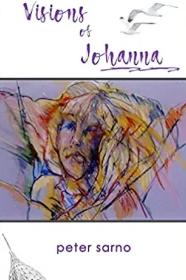
Matt, the story’s first-person narrator, is a young, freelance music critic during the 1980’s. His life is changed when Johanna, a flamboyant feminist and artist seven years his senior, picks him out at a Bob Dylan concert and they fall in love.

PFP
But something is off about their romance. Matt eloquently details the concerts they attend; the art galleries and museums they visit, and so on. But he has little curiosity about Johanna’s early life and rarely speaks about his own. Nor does he reveal his hang-ups or explain why he’s hesitant to leave his financially tenuous life in Boston to live with Johanna in New York. Sarno keeps the mystery behind Matt’s detachment a secret until the book’s powerful and surprising final chapters.
The author skillfully portrays Matt, who isn’t clueless about his problems although he can’t address them directly or share them. “It was as if certain neurotransmitters… were blocked. Then — like a school crossing guard –– my subconscious stepped in front of me and waved a massive stop sign.”
His use of metaphors and lush language draws readers into the story. For example, Matt likens his breakup with Johanna to cleaning up after a Macy’s Thanksgiving parade. “Sure, there had been several colorful floats, bright music and gigantic helium-filled Disney-character balloons – even a visit from Santa. But the once-glittering confetti – now stained and soiled –along with the empty plastic cups and Popsicle sticks were all that survived.”
Some of Matt’s references may confound younger readers unfamiliar with the era. (For example, he compares his first time on horseback to “the scene from the opening credits of The Lone Ranger.)” And all readers must be patient, allowing Matt to confront his past on his own terms. However, Sarno’s subtle approach makes the denouement that much stronger. Indeed, as the story reaches its affecting conclusion, readers may shed a tear or two before the final page is turned.
A medical doctor finds his career derailed by the Vietnam War and an intense love affair in R.J. Mikelionis’ debut, Blue Fire.


As a medical student, John Cameron questions some of the practices he sees. As an intern, he fights hard for his patients but is demoralized by the tragedies he encounters. Overall, he finds it hard to connect with people, sustain relationships, or feel part of the world.
When he’s called to serve as a shipboard medical doctor in Vietnam, the slaughter he witnesses demolishes Cameron’s faith in humanity. Adrift after his service, he travels Europe and in Athens meets Chris, a beautiful and mysteriously sad young woman who steals his heart. Their love is sudden and powerful, and when Chris disappears, Cameron tracks her through mountain and desert, growing increasingly unmoored from the world, until a final confrontation upends everything he thought he knew.
The insider’s medical knowledge is the novel’s biggest strength; for those of strong stomach, the hospital scenes are gripping and effective. Less evocative are Cameron’s relationships, even with people he’s supposedly drawn to. Scenes with other people devolve into terse, disembodied conversations: “’That’s it for today, Mel.’…‘See you at breakfast, Cameron.’” This might stop readers from becoming fully engaged or feeling that they know and relate to the characters.
The prose otherwise has remarkable range, at times playfully descriptive, at times spare and haunting. The imagery is most powerful when describing Cameron’s surreal perceptions, such as his hallucinations in the desert where he encounters the blue fire of the title. Certain descriptions are undeniably beautiful: the sun in Athens “was a transparent being, a crystal gem visiting the earth.”
For some, the moments of vivid language will make up for the overall lack of narrative development. While uneven, Blue Fire is readable and thoughtful in its suggestion that a man’s search for meaning may not, in the end, yield answers.
 BY CHARLES SAMPSON, PHD Adult
BY CHARLES SAMPSON, PHD Adult
Charles Sampson’s memoir is a highly compelling story of six generations of his high-achieving African-American family, told in the context of historic events like the Civil Rights Movement and the Great Migration.
An accomplished professor emeritus in the field of urban and public affairs Sampson weaves academic research, genealogy, and oral tradition from his Laurel, Mississippi, childhood into effortless storytelling.
Sampson traces his family to the West African trading port first called Senegambia (now Goree Island). He describes an emotional visit there, then explains how the global slave trade involved sophisticated business practices.
His book illuminates how enslavers created equally effective systems to brainwash “the Negro” to accept a permanently inferior role in society. Lesser education, high rates of incarceration, and voter suppression are still systems used today. In another example of society’s disregard for black communities, he describes his boyhood church being torn down to make way for Highway 59, a scene repeated in countless black communities during the 1950s’ interstate highway expansion.

Sampson’s parents emphasized education as a path to economic and social advancement. All eight of their children were highly educated. While Sampson admits the promise of meritbased advancement and reality sometimes conflicted, his reflections on being a black man in a white-dominant culture are mild. Without bitterness, he writes that he coped in part by rationalizing away negative feelings, focusing on career goals, and compartmentalizing past injustices.
Sampson’s memoir is a thoroughly engaging, well-paced story. His siblings, friends and travels feature prominently, and his thoughtful reflections are sprinkled throughout. While his own story—arriving nearly halfway through the book—might not grab readers as much as earlier stories that link to larger events and his prose is occasionally repetitive with some tangents, these issues don’t detract from the overall quality of this first-rate memoir. Sparrows of Senegambia deserves a place on shelves next to other nonfiction books about the AfricanAmerican experience, told more fully and factually in the post-George Floyd world.
 BY DAVID MICHAEL SLATER Adult
BY DAVID MICHAEL SLATER Adult
Jonathan Greenblatt, CEO and National Director of the Anti-Defamation League, wrote of David Michael Slater’s The Vanishing, “It has often been said that we need creative ways to illuminate the horrors of the Holocaust for each new generation.” The Vanishing does just that. The story opens in December 1941, slipping easily into the life of eleven-year-old Sophie Siegel, who has moved to “a town of merely ten thousand” because “it was known for leaving its Jews—all two hundred of them—to themselves.” On this day, however, Sophie’s mother sews yellow stars imprinted with the word “Jude” on the family’s outer garments, which means only one thing: the Jews will no longer be left alone.
Soon, Jewish citizens are forbidden to earn a living, which forces them to pool money and food to survive. And when they are no longer allowed to go outside, families cut holes in the adjoining walls of their attached homes to maintain the flow of the few remaining resources. By the night of Sophie’s birthday in November 1942, Sophie’s parents have decided to flee, but they are stopped by the Nazis. What follows is a brutal account of the Holocaust through the eyes of Sophie, who becomes invisible and takes on the quest to save her best friend, Gideon “Giddy” Goldfarb.
Sophie is insightful, inquisitive, brave, and intelligent, and over the course of the story, which is “a blend of history, fiction, and magical realism,” she observes and participates in daily life, learning that her actions have both beneficial and damaging consequences. She steals food to help families survive, but when those people are thought to be thieves, a life is lost. She alters the trajectory of a bullet, saving a man, but retribution, in the form of grotesque slaughter, is the outcome. And though each section of the book follows Sophie to a different setting—The Town, The Ghetto, The Camp, The Woods, and more—the horror is similar. People are “too hungry and weak,” corpses are “a regular sight,” a man is shoved “headfirst and alive, into an open red-hot oven.”
Slater does not hold back in his description of the horrors Sophie encounters, and the book does come with a warning for young or highly sensitized readers. But truth is often horrific. The Vanishing, which is “dedicated to all those committed to Never Again,” is a poignant and important read that reminds the reader to stay vigilant.
I’ve never seen someone’s experience with mental illness so casually laid bare as I did in Amanda Rosenberg’s That’s Mental.

In this collection of essays, Amanda talks about anything and everything mental illness. Whether it's her experience with bipolar, the struggles of getting help, or ways you can help those around you who may be struggling with it, it's all in there.
I’ve never met Amanda, but I feel like I have after reading That’s Mental. Her writing is honest and sensitive, but it never feels unbearably heavy. Her tangential, stream of consciousness, ‘oh by the way’ writing style works very well to soften a traditionally heavy topic. One second she’ll be talking about her first suicide attempt, the next she’ll crack a joke about David Attenborough narrating over her mental break. Dark humor galore, but she never downplays how serious the issues are.
Even though That’s Mental is an easy read, it’s an important one. Society stigmatizes mental illness. Television dramatizes it. As people, we come into contact with so much that’s not a true portrait of illness, so much so that even those of us with it don’t properly understand it. Just in the last few years, much of the smoke around mental illness is being cleared away, and that’s thanks to the work of relatable storytellers like Amanda.
It’s rare that I say “reading this book will make you a better person,” but this is one of those cases. It wasn’t until I was confronted with the harsh reality of my own mental illness that I gained more compassion for myself and others. This book may have softened some of those growing pains. It may have helped me support someone who was “going through it” or better explain to someone the realities of mental illness. It may have made me realize to get help sooner, and that there’s nothing wrong with that. Whether you deal with mental illness or not, get this book, then give it to a friend.
Released in November last year, Iranian author Mahsa Mohebali’s In Case of Emergency is a satirical contemporary novel. Mariam Rahmani translated this book into English.
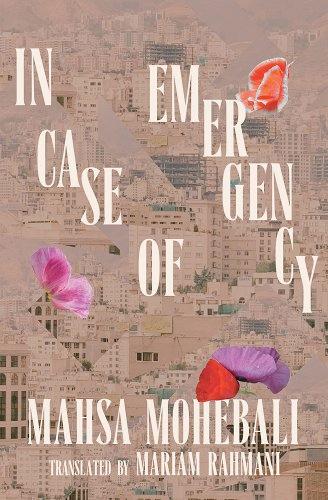
Twenty-something Shadi is a lost wealthy woman, who is looking for her next opium fix. Meanwhile, her family and the city where she lives are falling apart, and Shadi could care less. This groundbreaking novel gives a look into the Iranian counterculture and mixes satire and dark humor. Having not read a translated book such as In Case of Emergency, I wasn’t sure what to expect. At first, I was a bit confused as to what was happening, but I realized it was the way Shadi was telling the story. In her first person narration, she was waking up during an earthquake and low on opium, and that’s all she can think about. Shadi proves to be an interesting character. She comes from a wealthy family, but yet she cross dresses to avoid the hijab laws. While her family is busy getting ready to flee Tehran where they live, Shadi takes off on her own. And this is the journey we read in the book.
While I don’t normally read an adult book in one sitting, I did this one. Not only is it short, but Shadi tells her one-day adventure through Tehran in a stream of consciousness, which makes the story move along at a good pace. With her POV, she speaks in vulgar language, which may offend some readers, but I think it shows the way she truly is. Even the translator’s notes in the last few pages of the book explains why she translated Shadi’s narration the way she did, so those pages are worth a read.
While I wasn’t sure I would enjoy this book as much as I did, I can see why Mahsa won an award for it. If you’re looking for a book about Iranian counterculture, In Case of Emergency is a good choice.
In her fascinating memoir, women’s clothing designer Diane Gilman (with Jan Tuckwood) recounts her extraordinary path to success and fame in the fashion world, and offers insights on how to “rock your life at every age.”
Gilman recounts how, when she was four, her father began sexually abusing her and later traded this abuse for verbal cruelty and threats of physical violence. As she grew, she used sewing as a mental escape, a skill that served her well throughout her life.
Attending UCLA in 1963, she sewed brightly colored outfits to wear. She hung out with a bohemian crowd and embroidered and embellished jeans for Janis Joplin and Jimi Hendrix. Later, she opened an L.A. boutique with two friends, featuring their original designs. (To their astonishment, Cher swooped in one day and bought every dress in the store.) She also landed a Bloomingdale’s contract for her iconic Cabal blouse, a prairie-meets-power style that sold nearly a million items.
But success didn’t always bring happiness. Gilman eventually found herself overweight, middle-aged, menopausal. Moreover, she lost the right to use her name to a Hong Kong conglomerate. “I barely recognized myself,” she writes.
Salvation came in 2008 in the form of television shopping channels QVC and HSN. Gilman’s DG2 jeans for baby boomer women became an overnight sensation, selling more than 19 million pairs to date.
Gilman offers valuable advice for women over 60. She stresses being visible, dreaming, smiling, and embracing your friends and second chances. Her writing is spirited, entertaining, and clever, yet she doesn’t avoid the hard topics, including a devastating breast cancer diagnosis, from which she recovered.
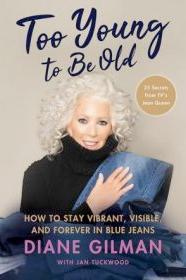
“Mandanipour served as a frontline officer in the Iran-Iraq war: a writer’s baptism of fire whose flames light up several stories here.” —Wall Street Journal
Published by Bellevue Literary Press (January 25, 2022) and translated from Persian by Sara Khalili, Seasons of Purgatory is Shahriar Mandanipour’s first ever English-translated story collection.

The stories in this book are enchanting, unnerving, and resonant. A common thread woven throughout them is the line between man and beast, with each tale revealing how tenuously that line has been drawn. Rich symbolism and metaphors abound in this book, with the reader gliding between past and present in a “blink and you’ll miss it” manner – so pay attention!
Some stories are bleak, full of betrayal and madness. However, there always seems to be a glint of hope and humanity in them, despite their depravity – and sometimes there’s even redemption. The prose is beautiful, the characters feel real, and the situations they find themselves in are haunting. In particular, my favorite stories from the collection are Mummy and Honey, Seasons of Purgatory, The Color of Midday Fire, and If You Didn’t Kill the Cuckoo Bird.
“Dostoyevskian in their density and black humor, Mandanipour’s stories capture the Iranian experience of constant upheaval in a brilliant translation that allows the English-speaking world to experience this gem of Iranian literature.” —Booklist
Released on January 17, 2022 by Carnelian Heart Publishing, A Hole in the Air is Lazarus Panashe Nyagwambo’s debut book.
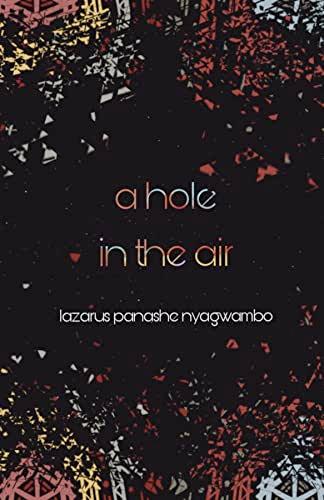
This collection of short stories is eclectic, delving into different aspects of Zimbabwean relationships (especially that of familial hierarchy), as well as the author’s own psyche. Each narrator is unique, and there are distinct voices and personalities throughout. This is an aspect of the book that I greatly enjoyed—in a way, it’s like we’re watching little vignettes unfold. Another thing I enjoyed about this collection is how there is never really any clear resolution. Each story ends on an ambiguous note, which could frustrate some people—however, I think that this tactic is more realistic, and exhibits the nuances of human morality. In particular, my favorite story of the bunch is The Letter.
The only thing that held me back was the language (not the swearing, but the actual phrasing of things). At some points, the language is beautiful and fluid. At other points, it’s a bit clunky. What I mean to say is, the book could’ve used another round of copyediting. However, this is my only gripe. I look forward to watching Nyagwambo’s career flourish, and can’t wait to see what he creates next!
“The air was thick with something unspoken, something opaque yet intangible that filled the gaping holes inside all of us.”
Nobody loves books more than us. We're a team of readers with broad interests and strong feelings about the books on our shelves.

Fernanda and Annelise are so close they are practically sisters: a double image, inseparable. So how does Fernanda end up bound on the floor of a deserted cabin, held hostage by one of her teachers and estranged from Annelise?
When Fernanda, Annelise, and their friends from the Delta Bilingual Academy convene after school, Annelise leads them in thrilling but increasingly dangerous rituals to a rhinestoned, Dior-scented, dragqueen god of her own invention. Even more perilous is the secret Annelise and Fernanda share, rooted in a dare in which violence meets love. Meanwhile, their literature teacher Miss Clara, who is obsessed with imitating her dead mother, struggles to preserve her deteriorating sanity. Each day she edges nearer to a total break with reality.
Jennifer S. Davis's linked collection, We Were Angry, introduces us to a group of friends in small-town Alabama whose lives are haunted by tragedies that reverberate across generations.
In Davis's world, Alabama is more than a fictional setting. It's a scene for interrogating power, privilege, pain, and what it means to live in-and to leave-the American South. In lyrical, urgent prose shot through with dark humor, Davis offers glimpses of a land of contradictions: dollar stores and golf courses, dive bars and country clubs, and long-forgotten communities flooded to make way for mansions where missing women are rumored to be buried.

In How We Disappear, awardwinning author Tara Lynn Masih offers readers transporting and compelling stories of those taken, those missing, and those neither here nor gone-runaways, exiles, wanderers, ghosts, even the elusive Dame Agatha Christie. From the remote Siberian taiga to the harsh American frontier, from rural Long Island to postwar Belgium, Masih's characters are diverse in identity and circumstance, defying the burden of erasure by disappearing into or emerging from physical and emotional landscapes. Described as "masterful" and as "striking and resonant" (Publishers Weekly), Masih's fiction, crossing boundaries between historical and contemporary, sparks with awareness that nothing and no one is ever gone for good-and that the wilderness is never quite behind us.
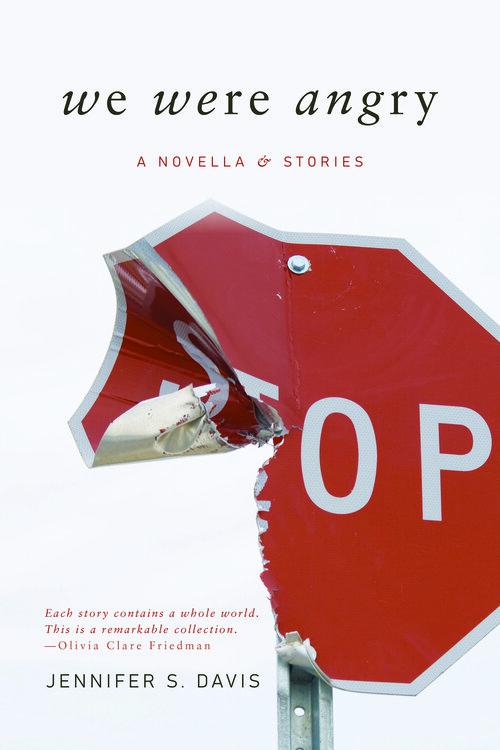
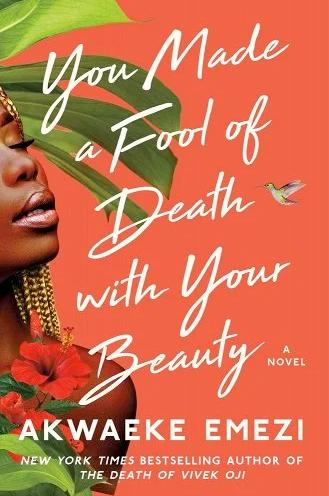
Feyi Adekola wants to learn how to be alive again.
It's been five years since the accident that killed the love of her life and she's almost a new person now--an artist with her own studio and sharing a brownstone apartment with her ride-or-die best friend, Joy, who insists it's time for Feyi to ease back into the dating scene. Feyi isn't ready for anything serious, but a steamy encounter at a rooftop party cascades into a whirlwind summer she could have never imagined: a luxury trip to a tropical island, decadent meals in the glamorous home of a celebrity chef, and a major curator who wants to launch her art career.

You think you know a person..
Ariel Pryce wakes up in Lisbon, alone. Her husband is gone--no warning, no note, not answering his phone. Something is wrong.
She starts with hotel security, then the police, then the American embassy, at each confronting questions she can't fully answer: What exactly is John doing in Lisbon? Why would he drag her along on his business trip? Who would want to harm him? And why does Ariel know so little about her new--much younger--husband?
The clock is ticking. Ariel is increasingly frustrated and desperate, running out of time, and the one person in the world who can help is the one person she least wants to ask.
Wings & Other Things is a book of migrations. Its characters flutter and flap, take off and land, then take off again as they seek the places they belong. These are characters caught in transition: a widow searching for a past self on an "Impossible Blue" coast, lovers explaining to the police and themselves why they're hiding in a Nebraska cornfield, a teacher on a flight from Chengdu struggling to be understood, a stranded artist accepting a ride from a stranger on a highway haunted by the ghost of a woman who never made it home. Each story is a transformation as Craig turns railroad tracks into an "infinite number line" and a lightning bolt into a "tentacle of the unseen." A plastic fork becomes a parable of fragility, and a "scrap moon" is an image of what is lost and what yet remains. Even a single word captures longing, instinct, regret, and stubborn hope: "Fly, fly, fly."


Sleepwalk's hero, Will Bear, is a man with so many aliases that he simply thinks of himself as the Barely Blur. At fifty years old, he's been living off the grid for over half his life. He's never had a real job, never paid taxes, never been in a committed relationship. A good-natured henchman with a complicated and lonely past and a passion for LSD microdosing, he spends his time hopscotching across state lines in his beloved camper van, running sometimes shady often dangerous errands for a powerful and ruthless operation he's never troubled himself to learn too much about. He has lots of connections, but no true ties. His longest relationships are with an old rescue dog that has post-traumatic stress and a childhood friend as deeply entrenched in the underworld as he is, who, lately, he's less and less sure he can trust.
Interweaving elegy, indictment, and hope into a love letter to California, Look at This Blue examines America’s genocidal past and present to warn of a future threatened by mass extinction and climate peril.
Truths about what we have lost and have yet to lose permeate this book-length poem by American Book Award winner and Fulbright scholar Allison Adelle Hedge Coke. An assemblage of historical record and lyric fragments, these poems form a taxonomy of threatened lives—human, plant, and animal—in a century marked by climate emergency. Look at This Blue insists upon a reckoning with and redress of America’s continuing violence toward Earth and its peoples, as Hedge Coke’s cataloguing of loss crescendos into resistance.


In Perth, Edie finds herself in a remarkably isolated but verdant corner of the world, but Edie has a secret: she committed an unthinkable act that she can barely admit to herself. In some ways, the landscape mirrors her own complicated inner life, and rather than escaping her past, Edie is increasingly forced to confront what she’s done.
Everybody, from the wildlife to her new neighbors, is keen to engage, and Edie does her best to start fresh. But her relationship with her husband is fraying, and the beautiful memories of her father are heartbreaking, and impossible to stop. Something, in the end, has to give.

In 1984, punk is rampant. Andy Warhol rules. And 20-year-old art student Jessica is sick of all the excitement going on without her. Hungry for the life she’s convinced is just beyond her fingertips, she sets her sights on an avant-garde study abroad program in London she can’t afford. Meanwhile, hometown boyfriend Drew wants to see other people if he’s not exciting enough to keep her stateside. Jess and her buddies rent a beatup apartment, trolling new wave clubs and waitressing double shifts in New Hope, PA, a cool and artsy restaurant town on the river, to scrounge-up tuition money. Then Jess meets Whit, a steamy daredevil guitarist who crawls through her window and makes her head spin like a record. Before long, Jess has to decide if the men in her life will leave her as damaged as her cracked-glass mosaic art projects—and whether they’ll stand in the way of her dream semester in post-punk London.

On a grey November evening in Victorian London, Edward Monteith, a moneyed but listless young man, stokes the fire at his local gentleman’s club, listening to its members: scientists, explorers and armchair philosophers discussing their supernatural experiences and their theories of life after death. Edward is taken under the wing of some sceptics and attends a supposed séance where he is captivated by a beautiful young woman selling flowers outside the theatre. What follows is a quintessential Gothic novel, a ghost story, and an uncanny love story. Soon Edward and Settie, the mixed-race Romani traveller are deeply in love, but their bond is threated by the inescapable class system of Victorian society. When Settie falls pregnant Edward panics. Afraid of their fate if he is cut off by his father, he makes a drastic decision with dire consequences.

An emotionally riveting novel for fans of Ibi Zoboi and Erika L. Sánchez about two sisters in Nigeria on their journey to break free of an oppressive home.
Sisters Cheta and Zam couldn’t be more different. Cheta, sharptongued and stubborn, never shies away from conflict—either at school or at home, where her mother fires abuse at her. Timid Zam escapes most of her mother’s anger, skating under the radar and avoiding her sister whenever possible. In a turn of good fortune, Zam is invited to live with her aunt’s family in the lap of luxury. Jealous, Cheta also leaves home, but to a harder existence that will drive her to terrible decisions. When the sisters are reunited, Zam alone will recognize just how far Cheta has fallen—and Cheta’s fate will rest in Zam’s hands.
The AD 312 Battle of the Milvian Bridge, just outside Rome, marked the start of a monumental change for Rome and her empire. This battle was the figurative bridge between old pagan Rome and new Christian Rome. And once Constantine had crossed that bridge, there was no turning back.
Constantine the Great, after winning this battle against his brother-in-law Maxentius and taking power at Rome, and strongly influenced by his mother, forcefully steered Romans away from the traditional worship of their classical gods toward Christianity, setting Rome on two paths – the adoption of Christianity as the state religion, and the relegation of the city of Rome to obscurity as the Western Roman Empire collapsed within 175 years.
PHOENIX FLAME by Sara Holland
Maddie Morrow thought her problems were over. She saved the Inn at Havenfall--a sanctuary between magical worlds hidden deep in the mountains of Colorado--from the evil Silver Prince. Her uncle the Innkeeper is slowly recovering from a mysterious spell that has left him not quite human. And there are still a few weeks of summer left to spend with her handsome, more-than-just-a-friend Brekken, even though she can't stop thinking about Taya.
But Maddie soon realizes there's more work to be done to protect the place her family has run for centuries. She must embark on a dangerous mission to put an end to the black-market trading of magical objects and open the Inn's doors to Solaria, the once feared land of shapeshifters.
As she tries to accomplish both seemingly impossible tasks, Maddie uncovers family secrets that could change everything.
FOOL'S ERRAND by Jeffrey S. Stephens
Years after the death of his gangster father, a young man discovers a letter that sends him reluctantly defying the mob as he races to locate a hidden treasure.

It’s been six years since the untimely death of Blackie—a charming rogue who endlessly pursued “The Big Deal”—when his son discovers an enigmatic letter telling of a cache of stolen money. Feeling no choice but to pursue his father’s dream, he embarks on a search that leads from New York, to the Strip in Las Vegas, and ultimately to the south of France. Along this life-altering journey, he is confronted by the dangers of his father’s past as he unravels a decadesold mystery, while revealing other long-buried secrets as well.
Poignant and entertaining, humorous and exciting, romantic and mysterious, Fool’s Errand leads him to discover both the treasure and himself.


translation, I would be limited to the borders of my own country. The translator is my most important ally. He introduces me to the world.”
ITALO CALVINO
